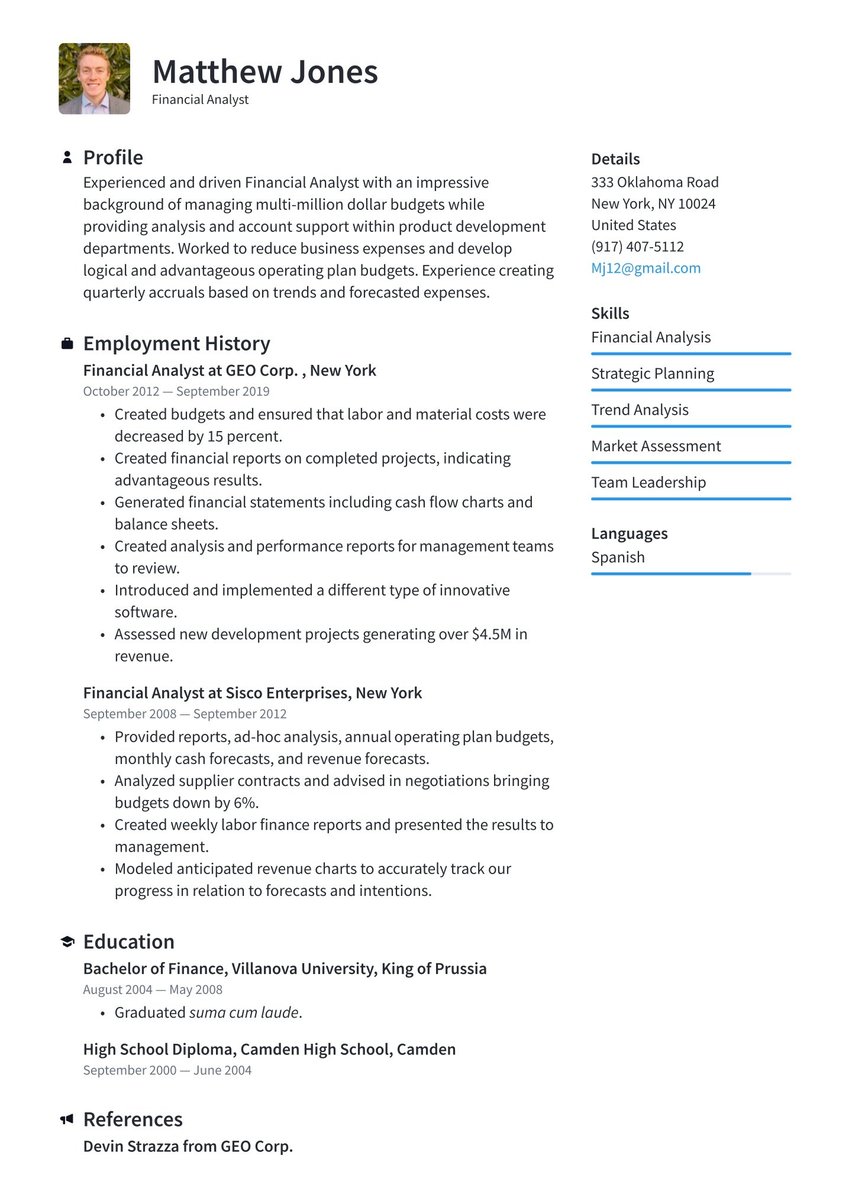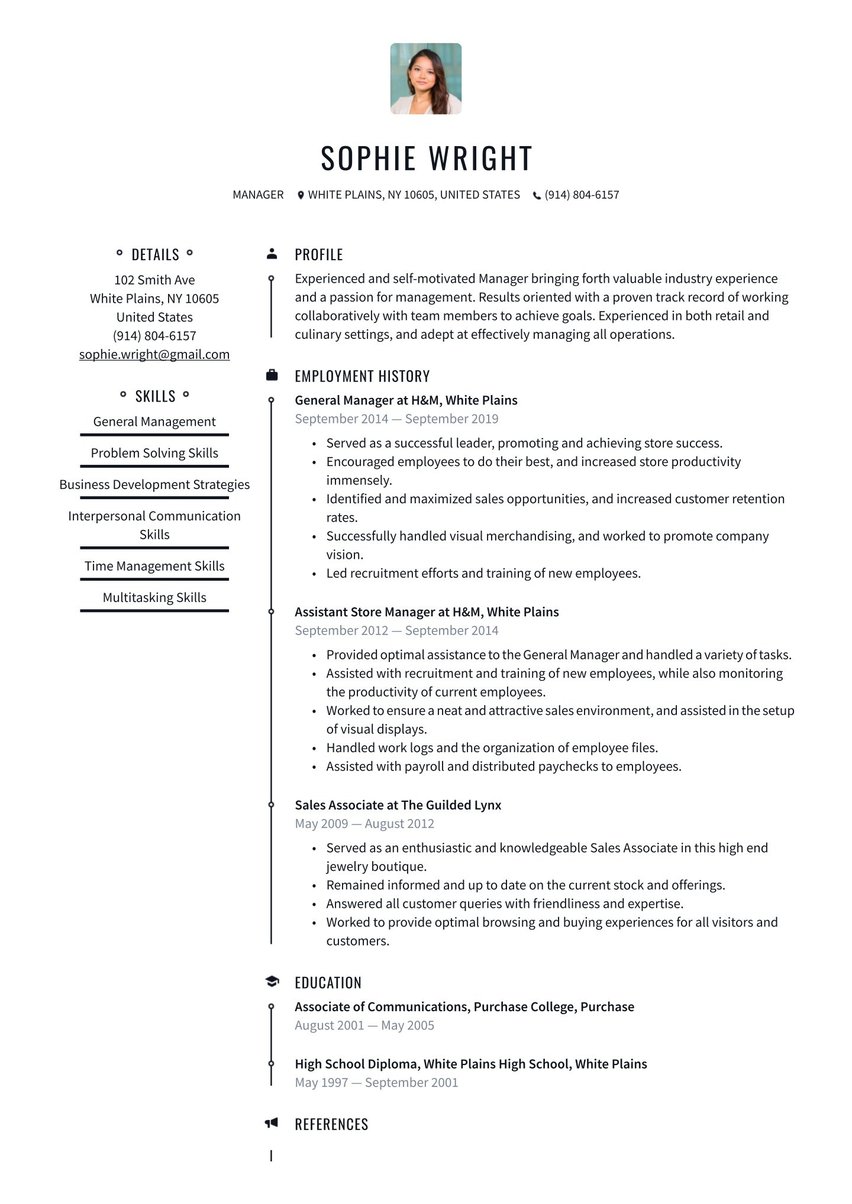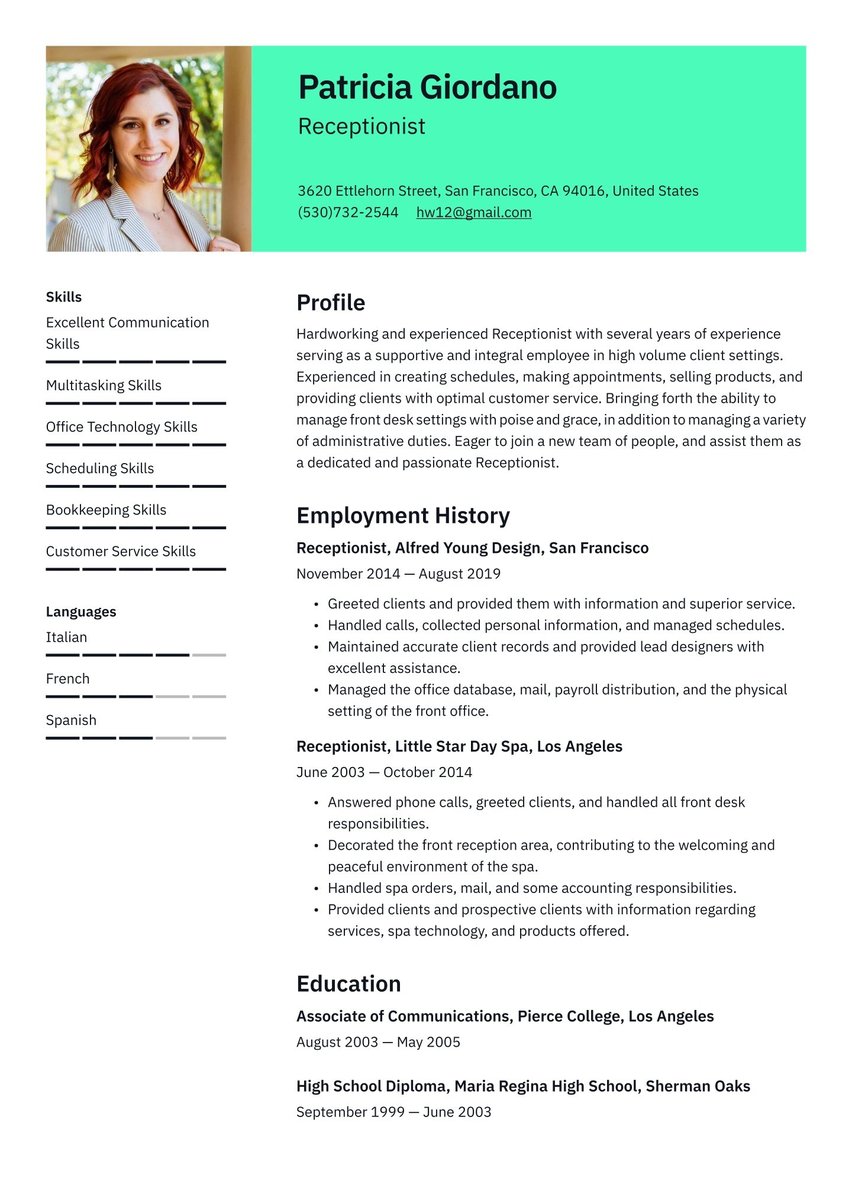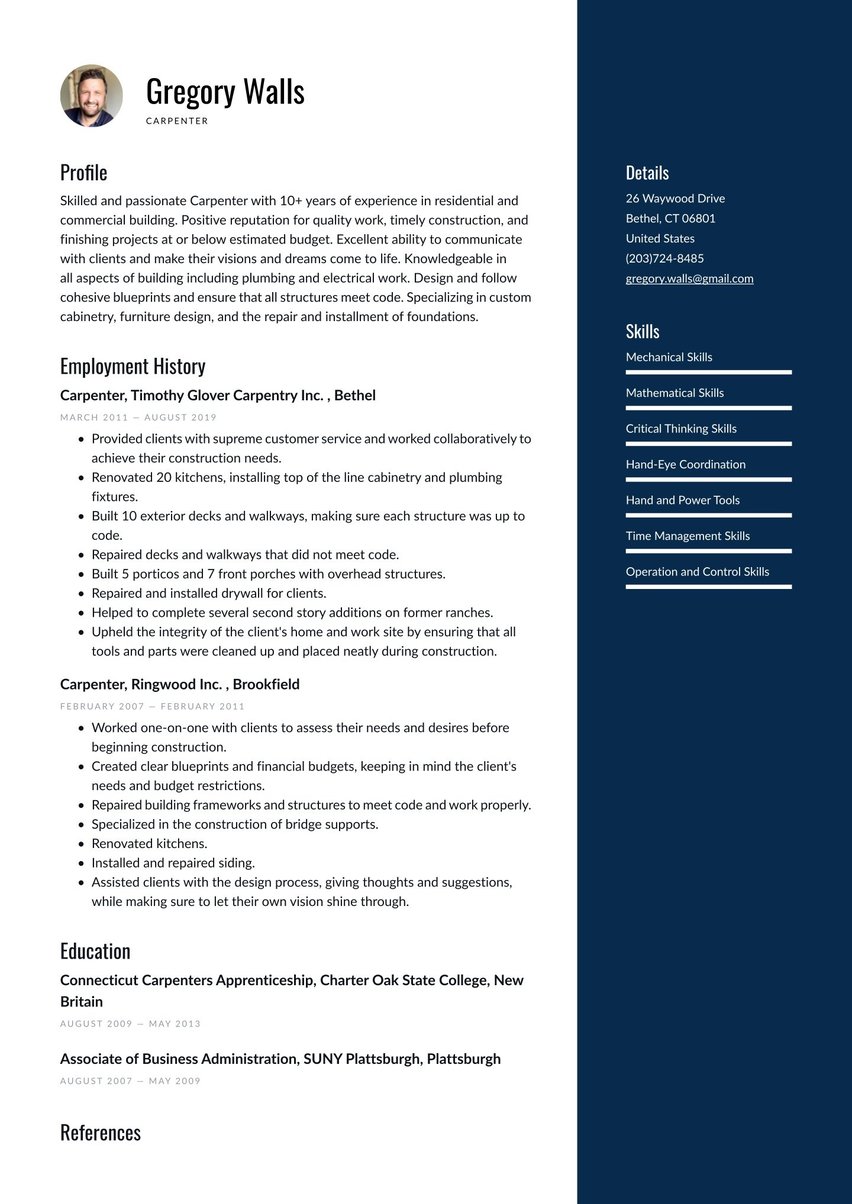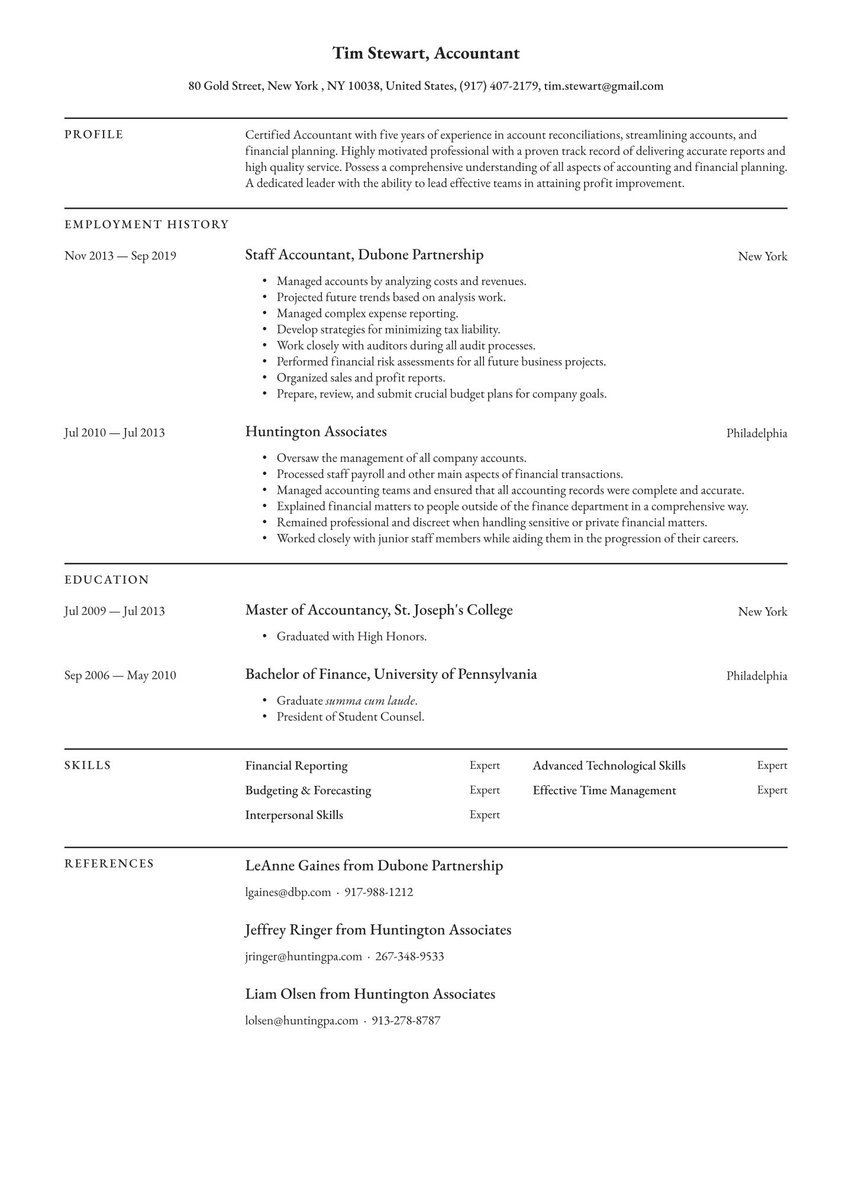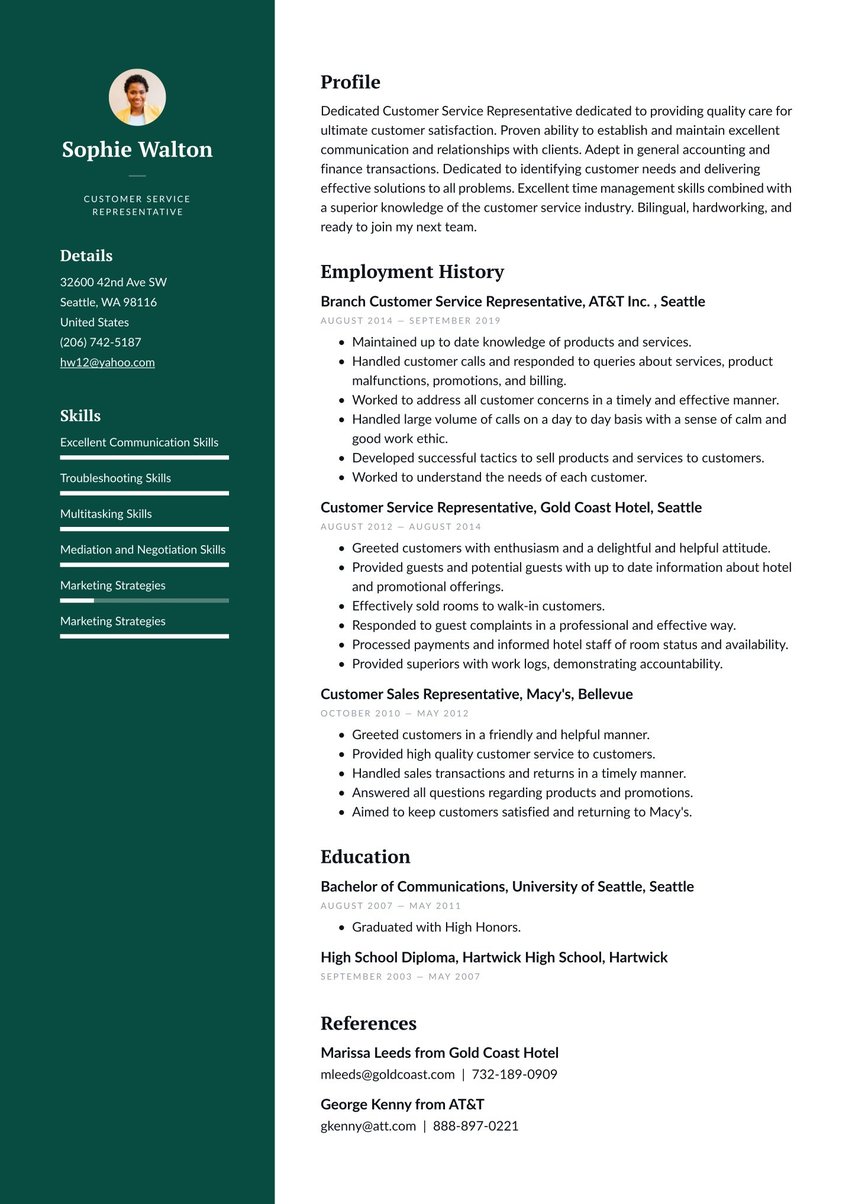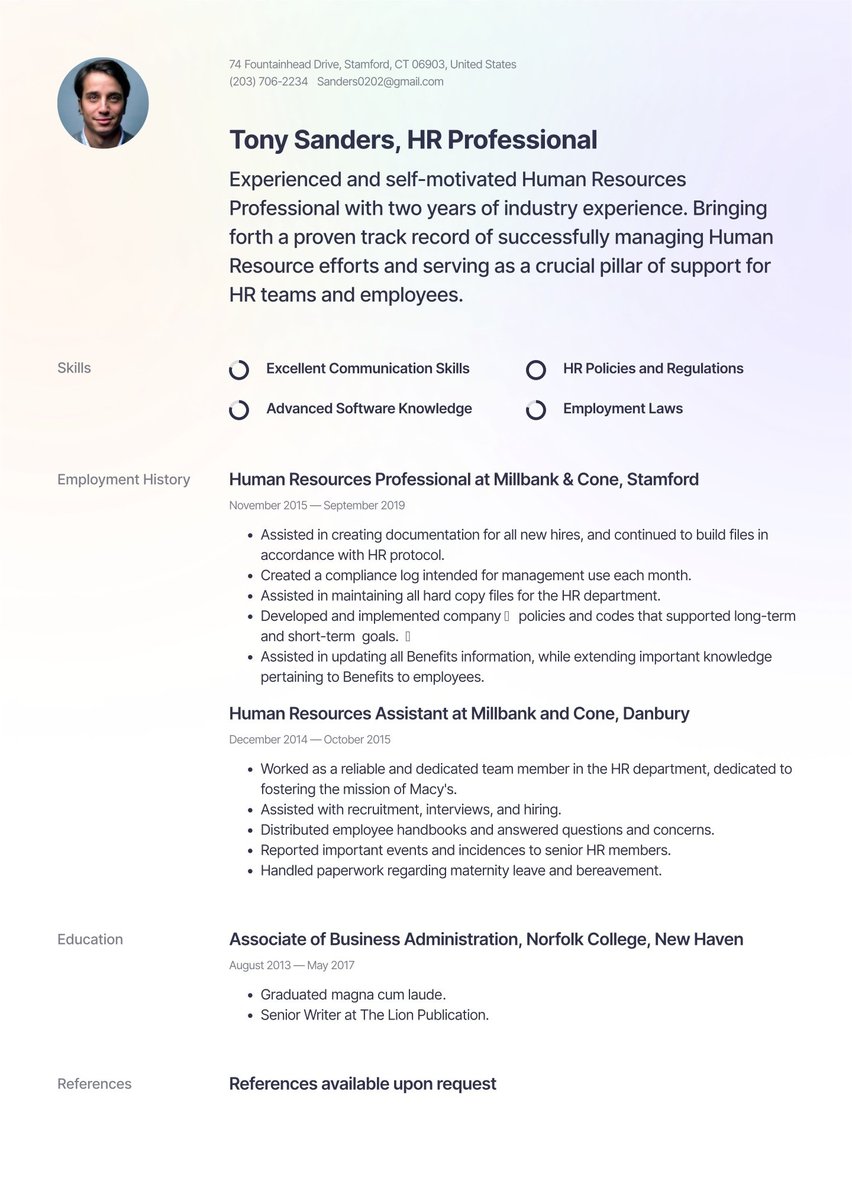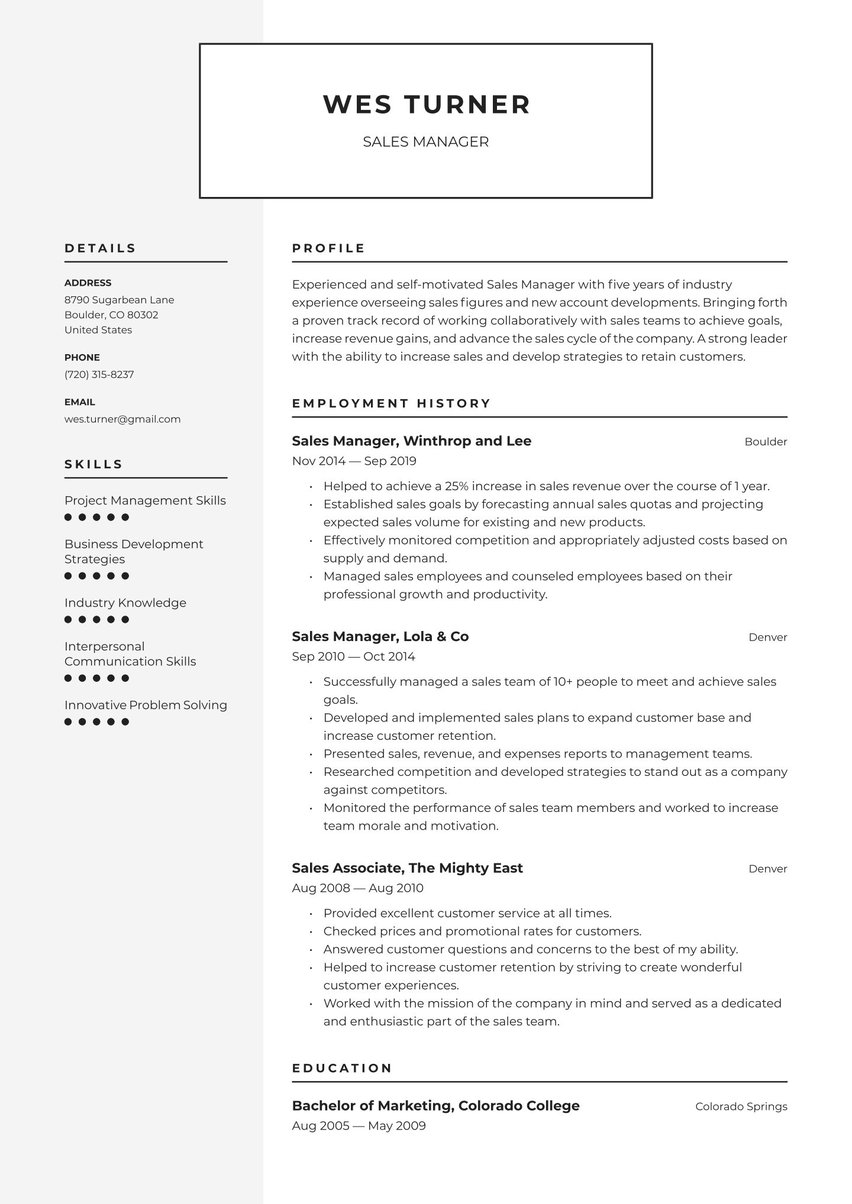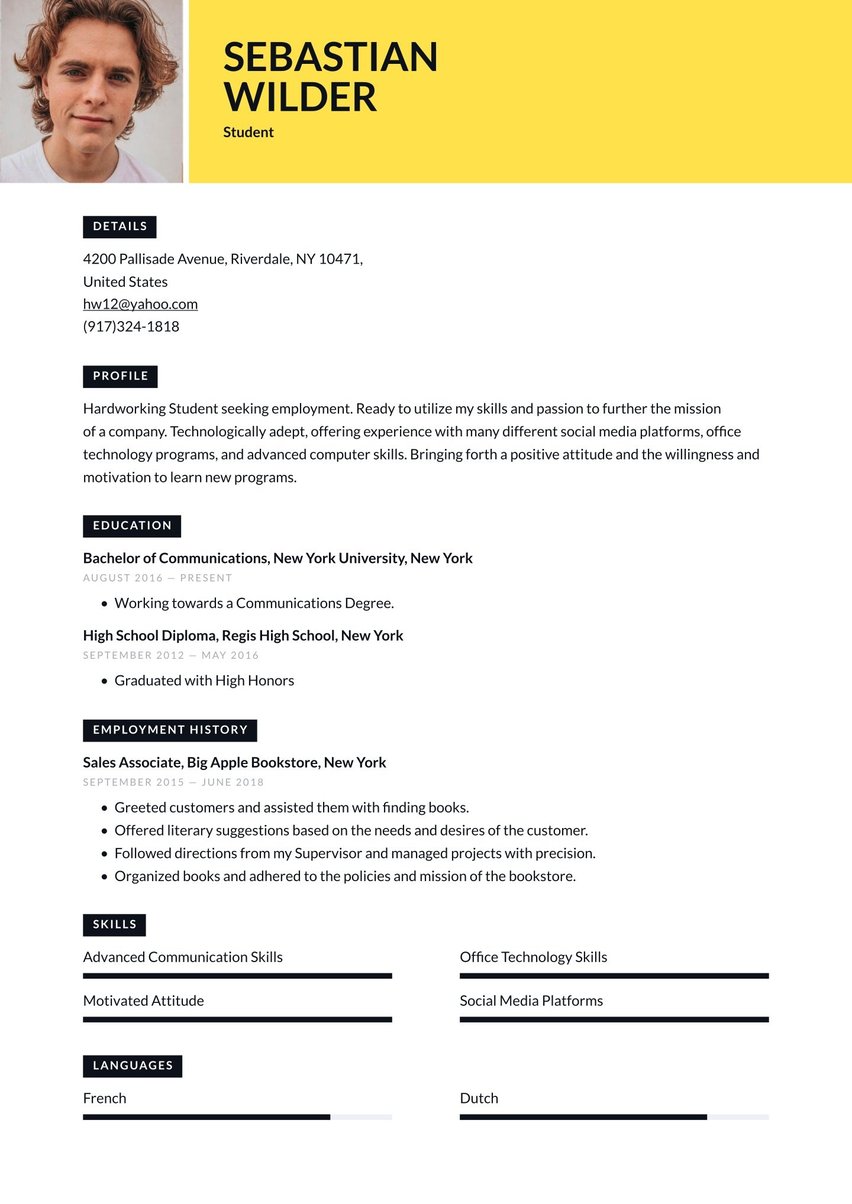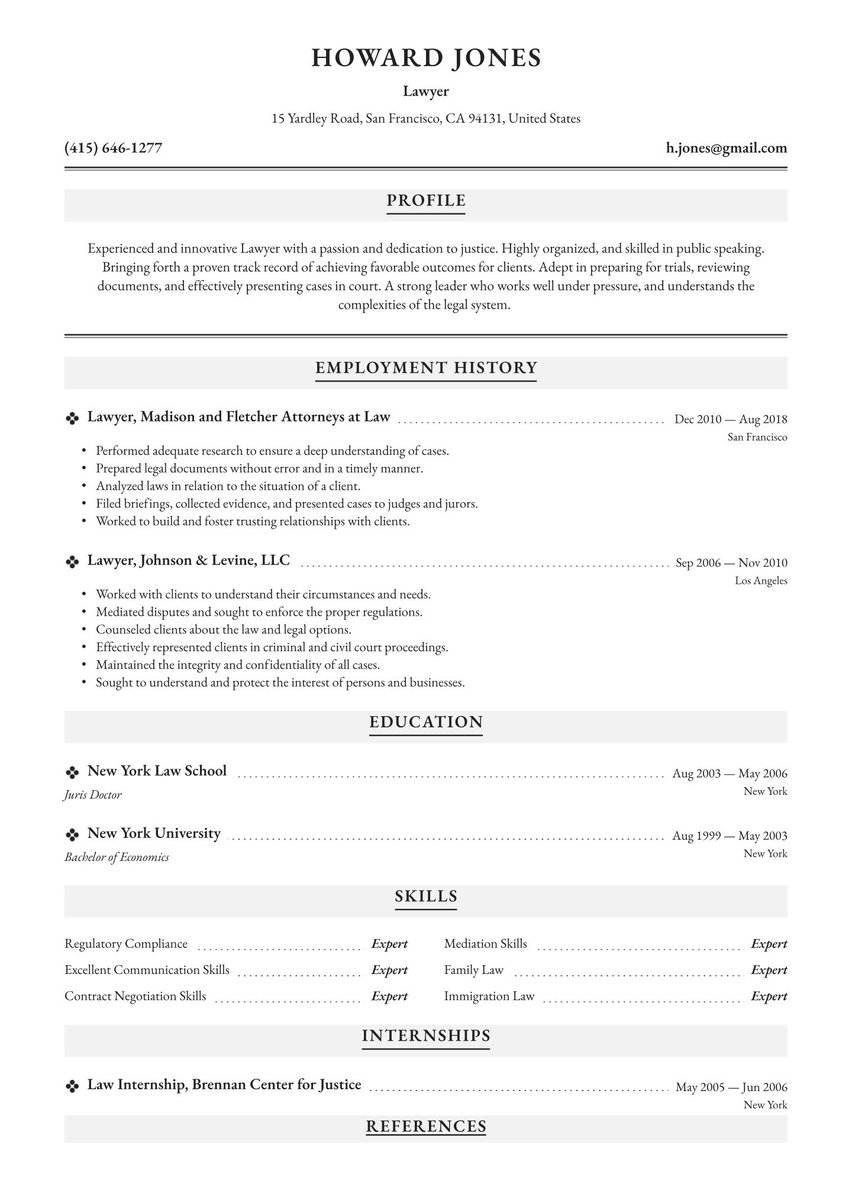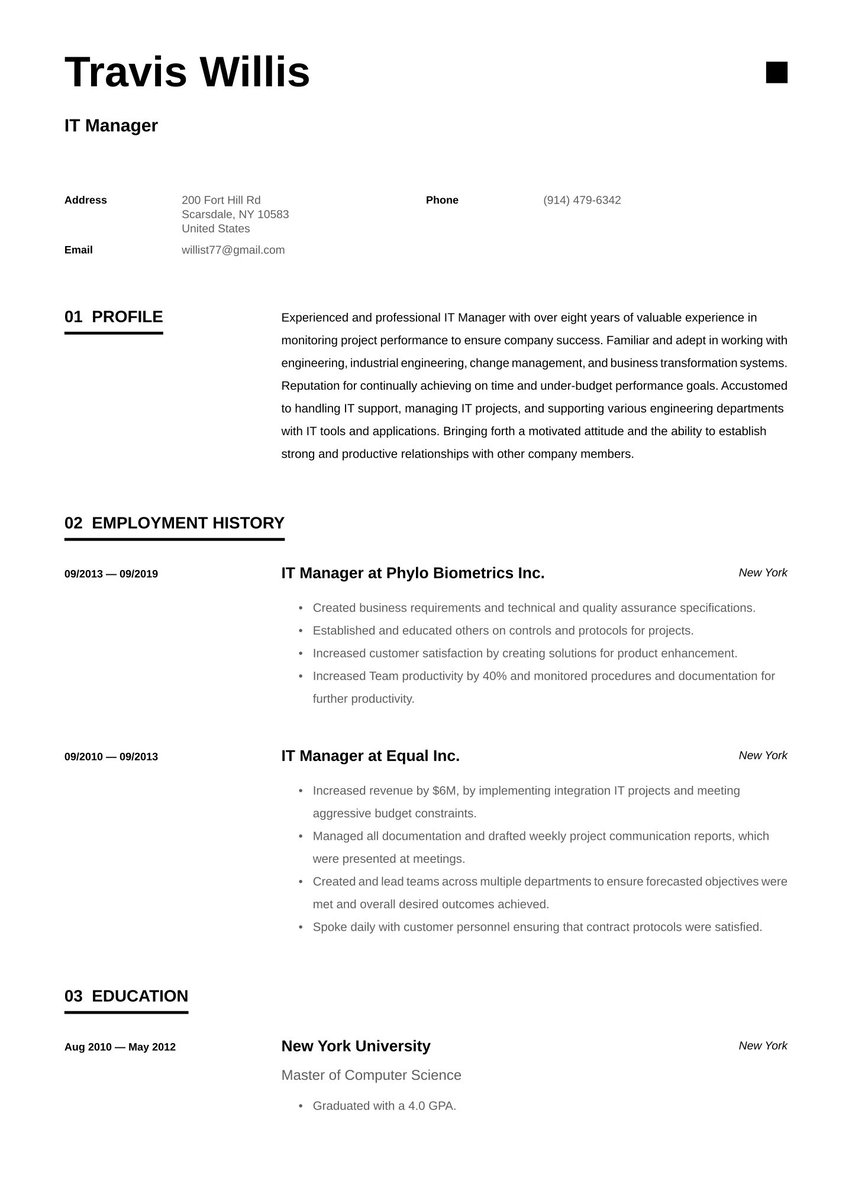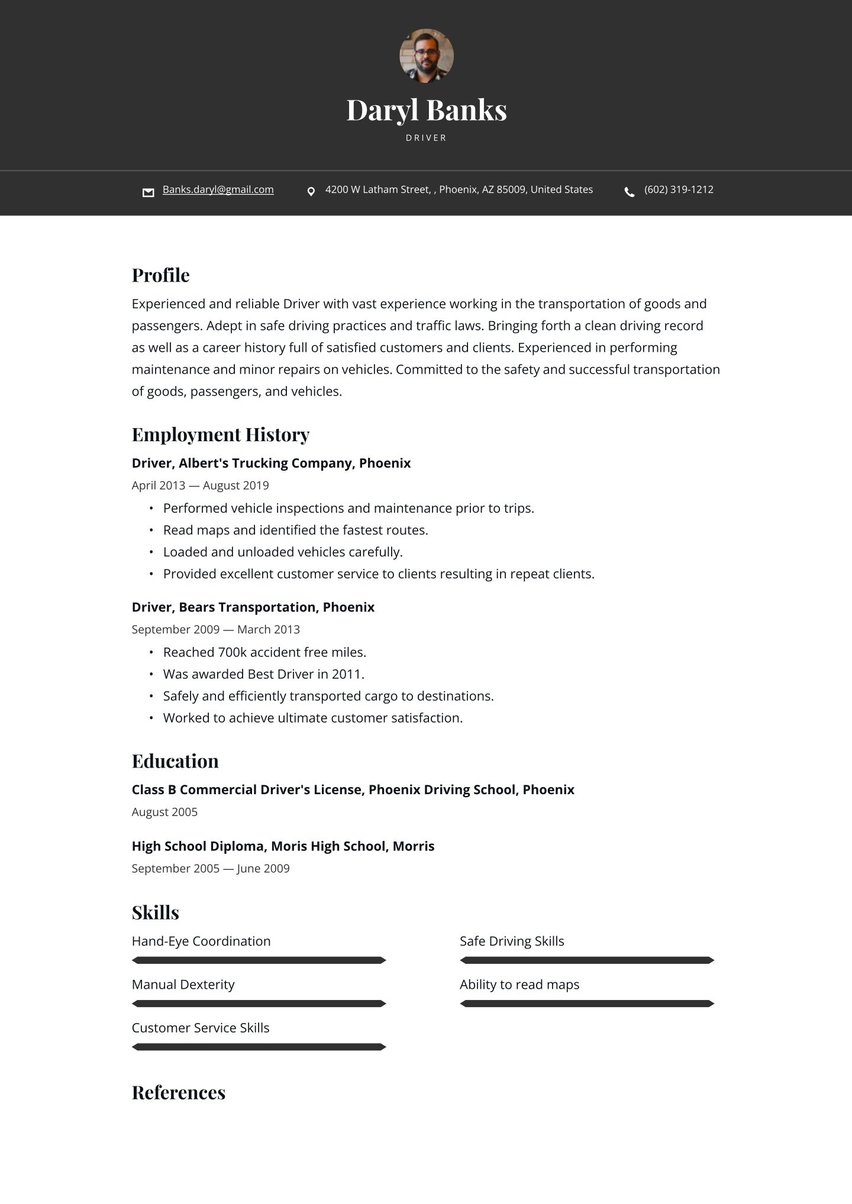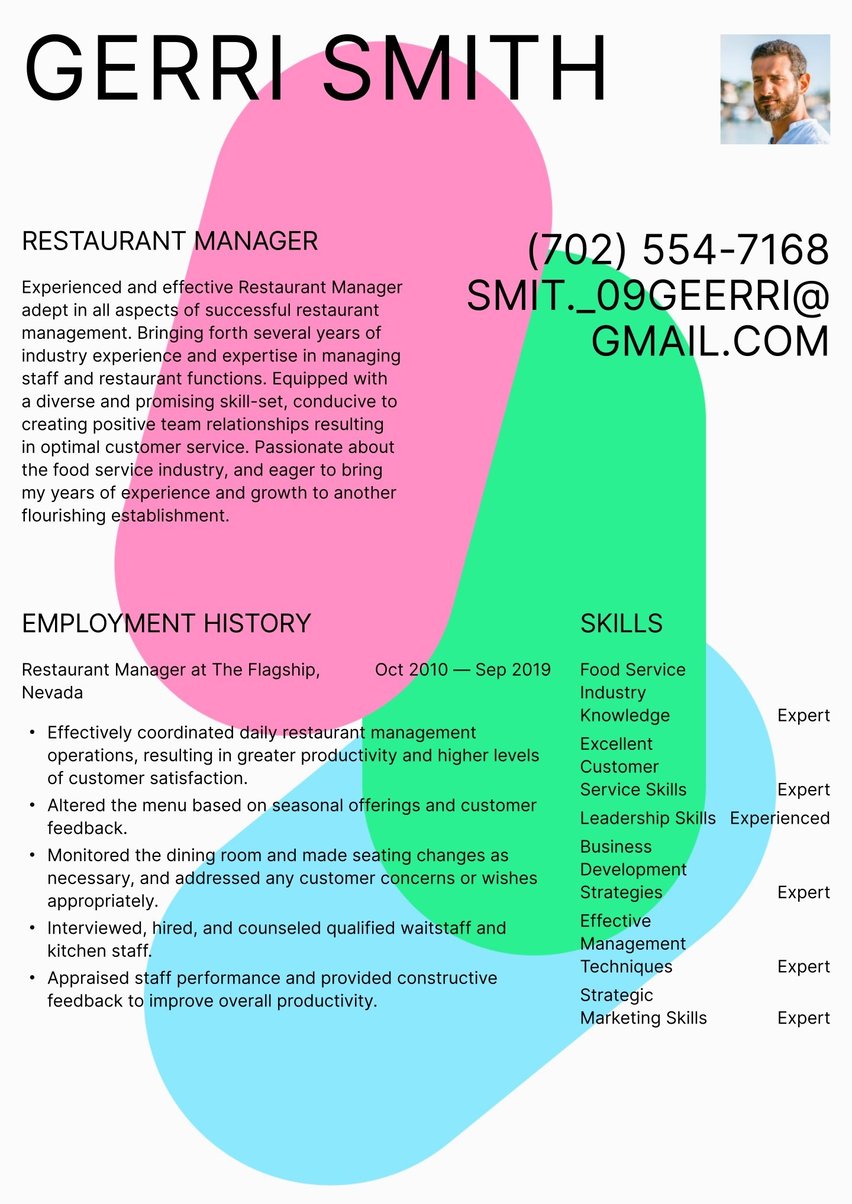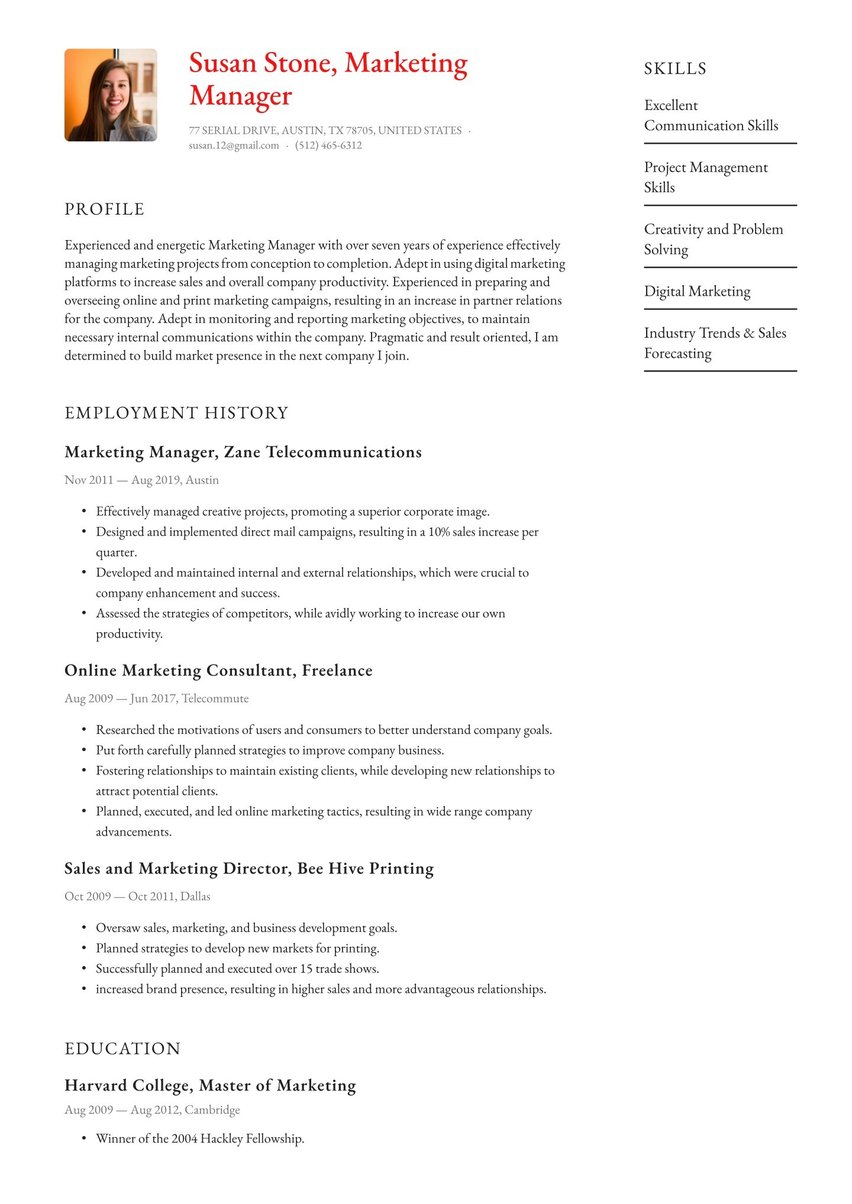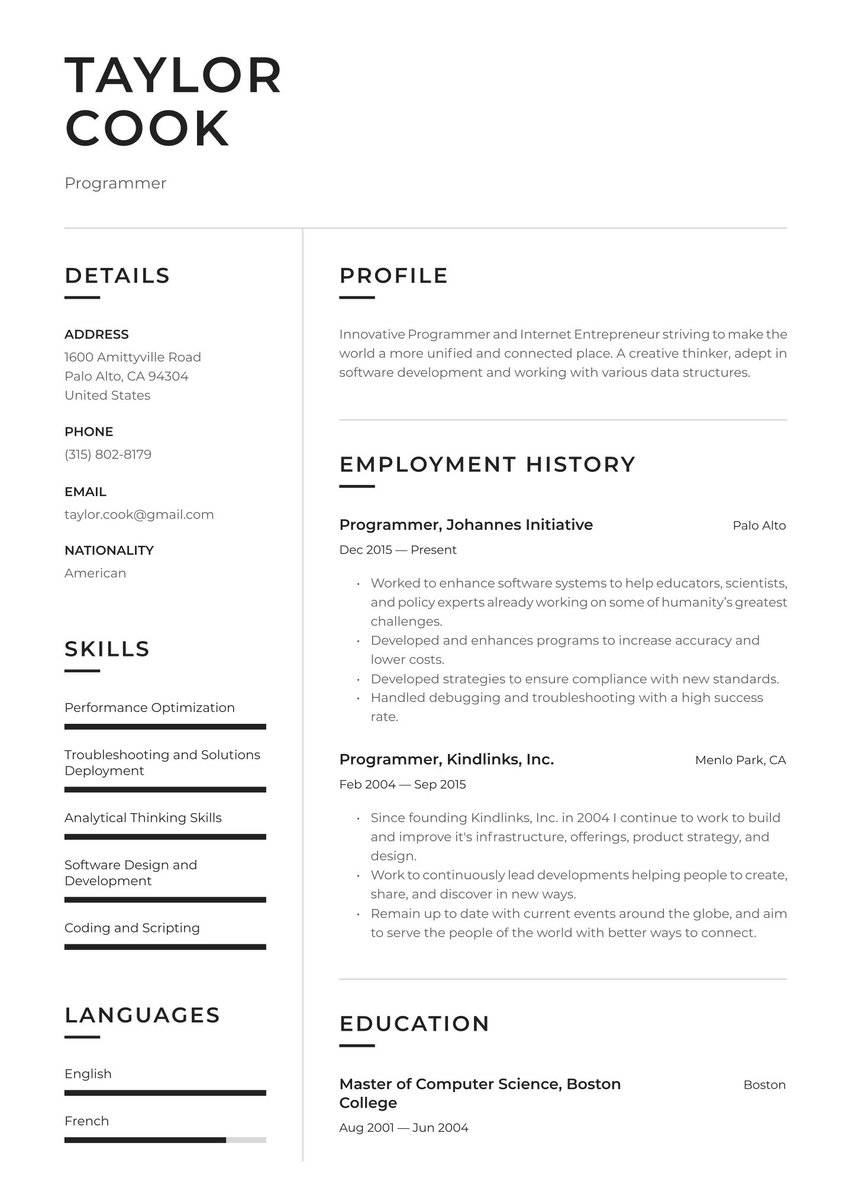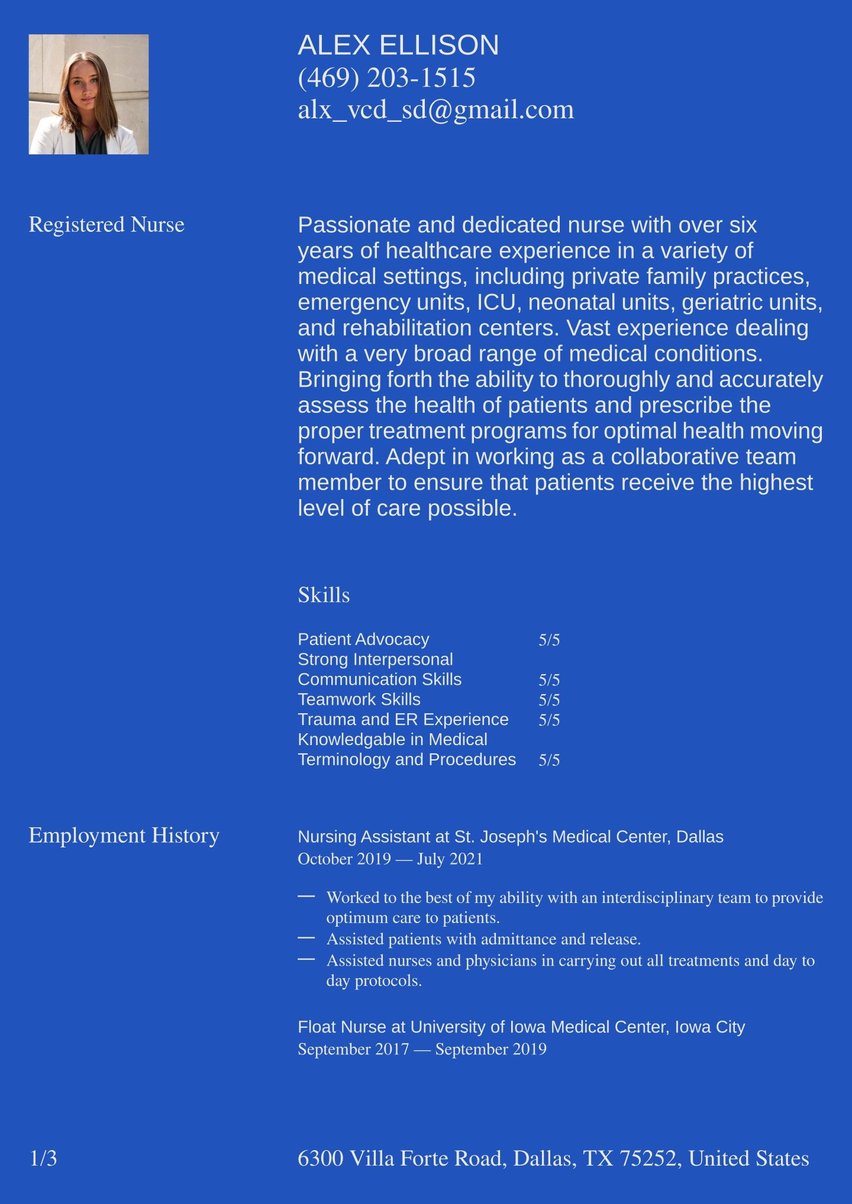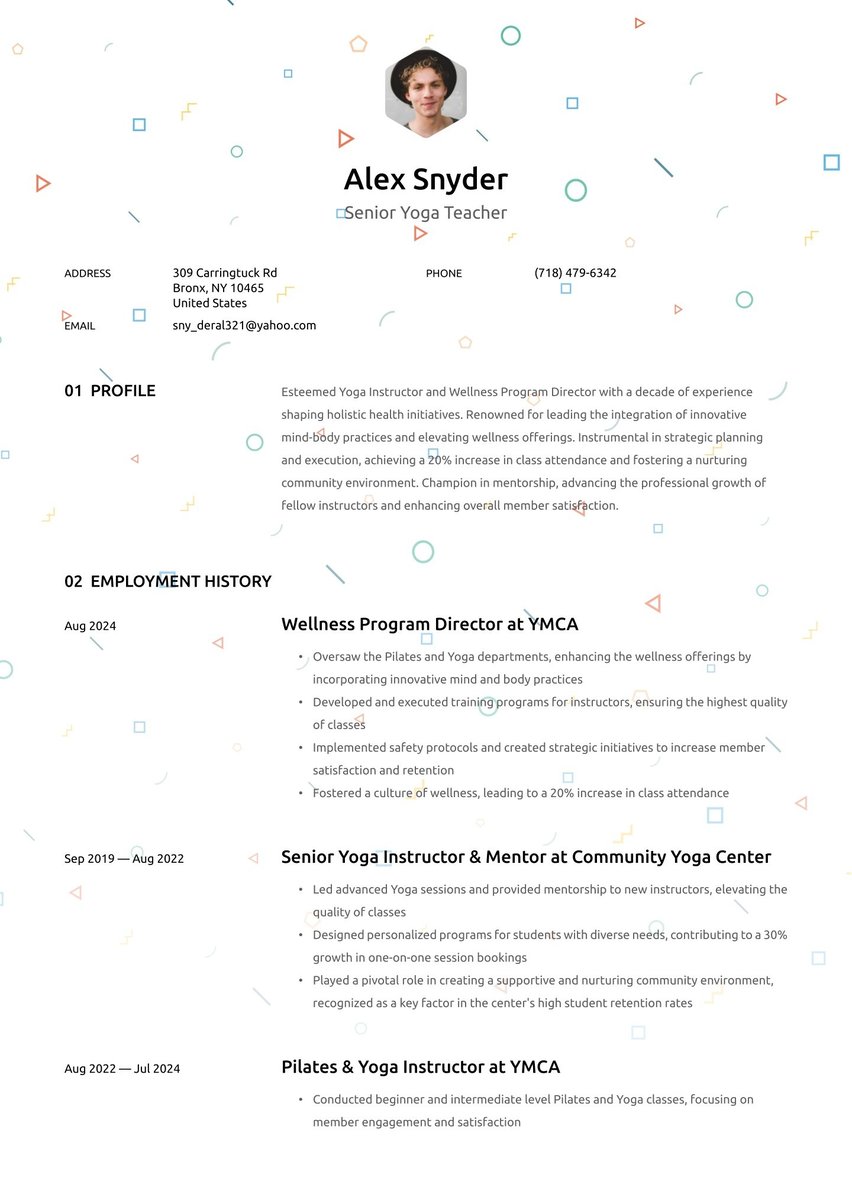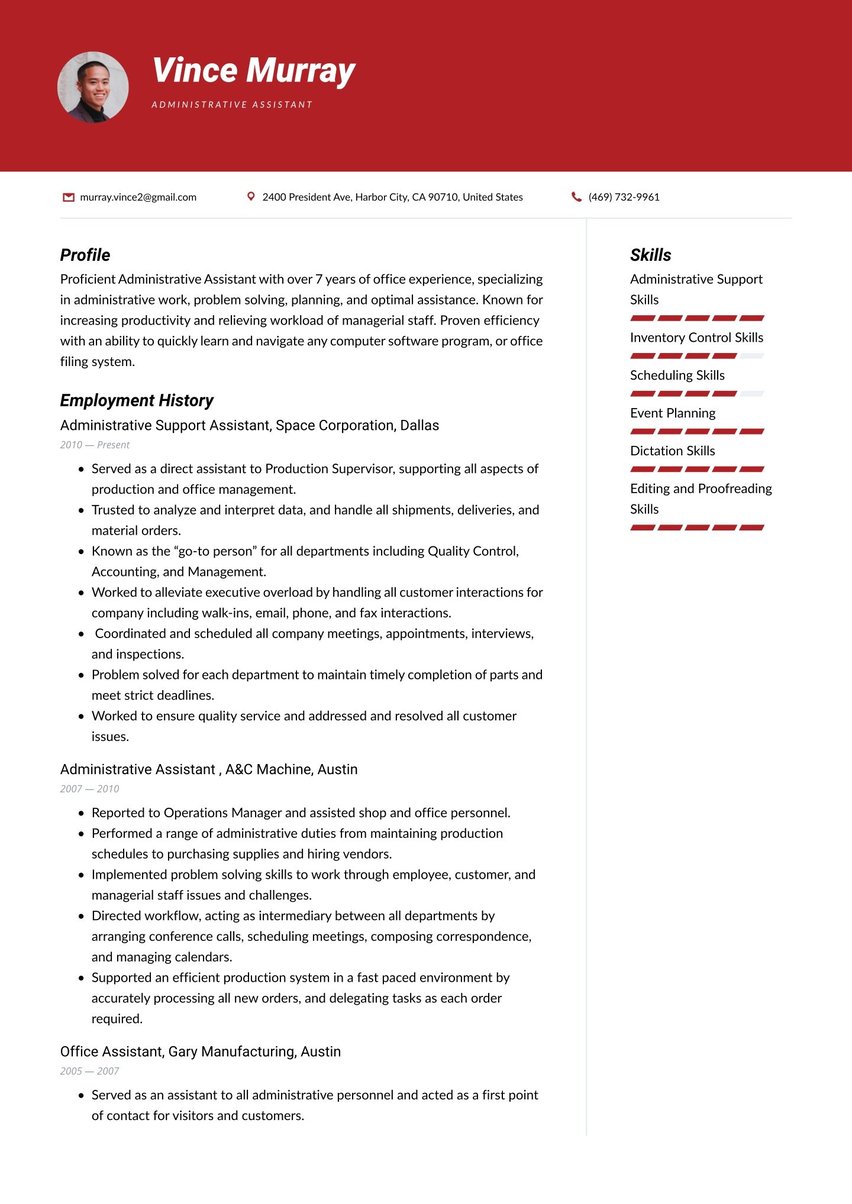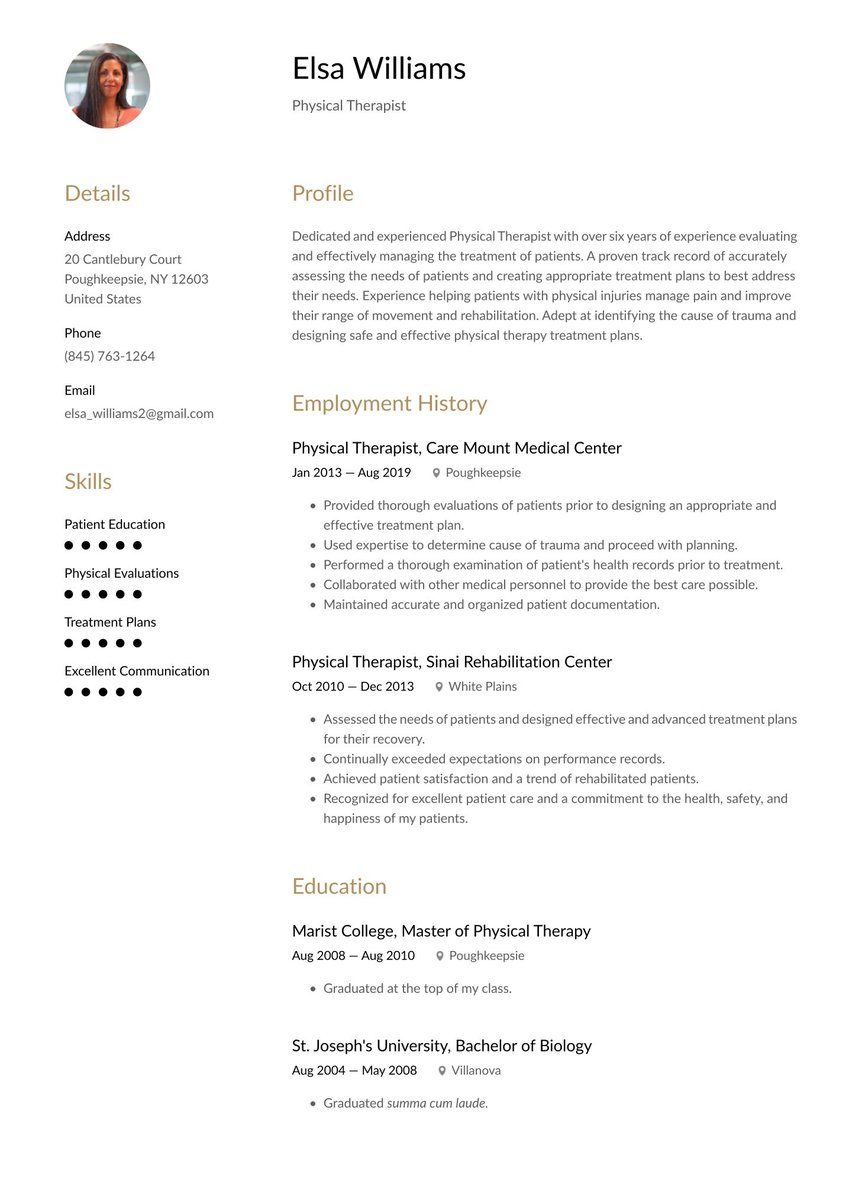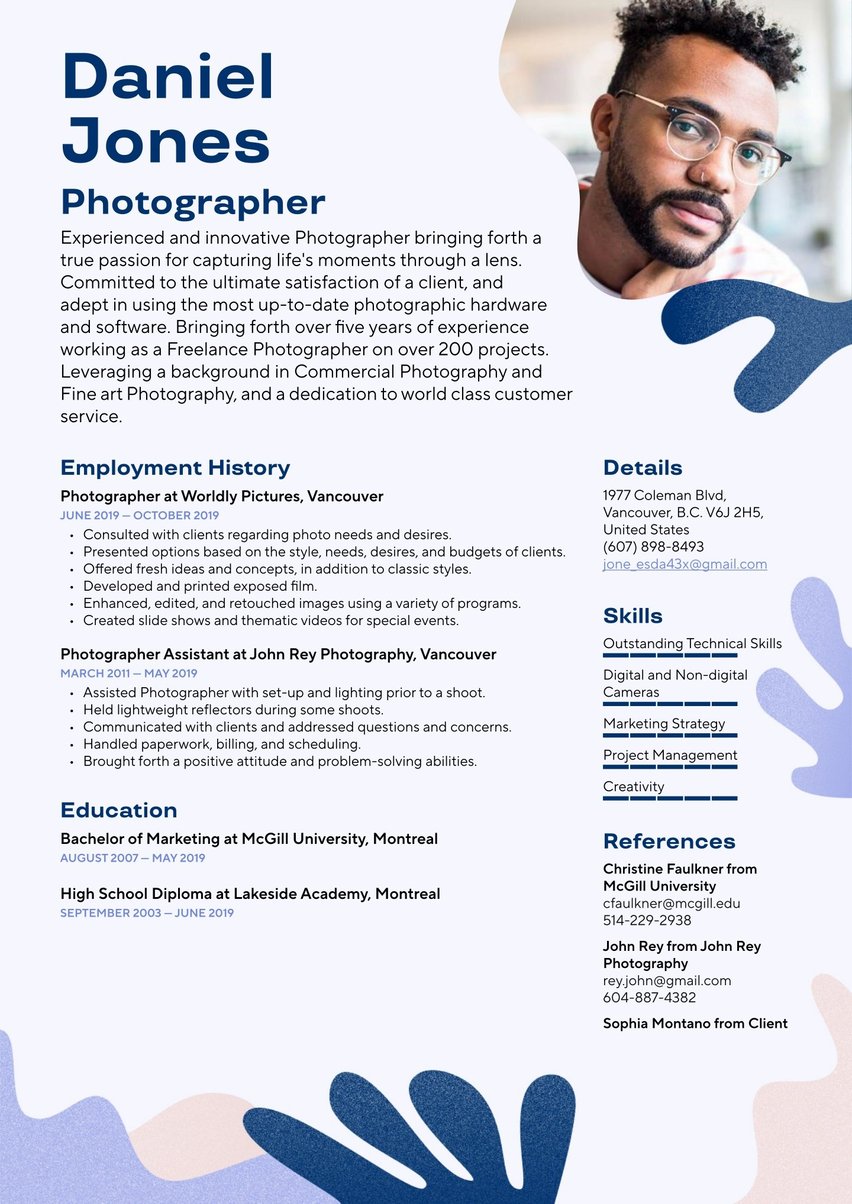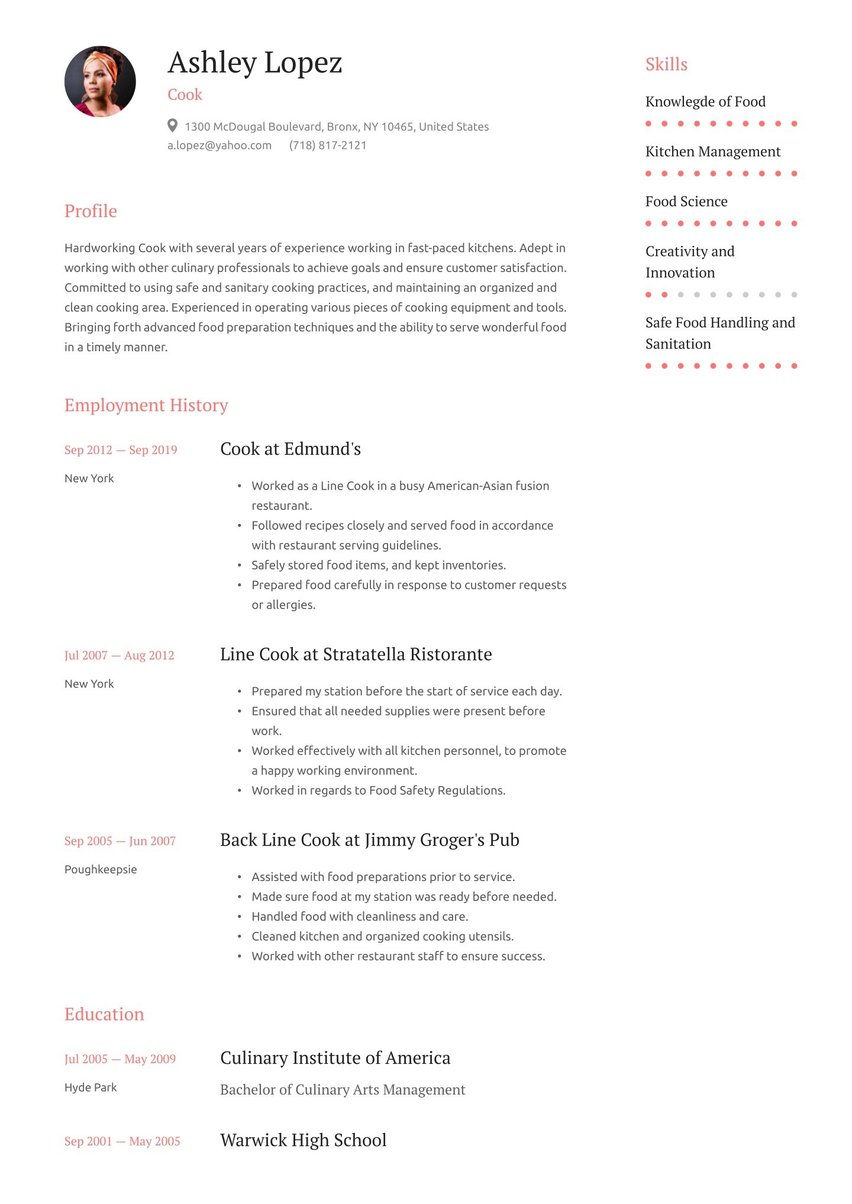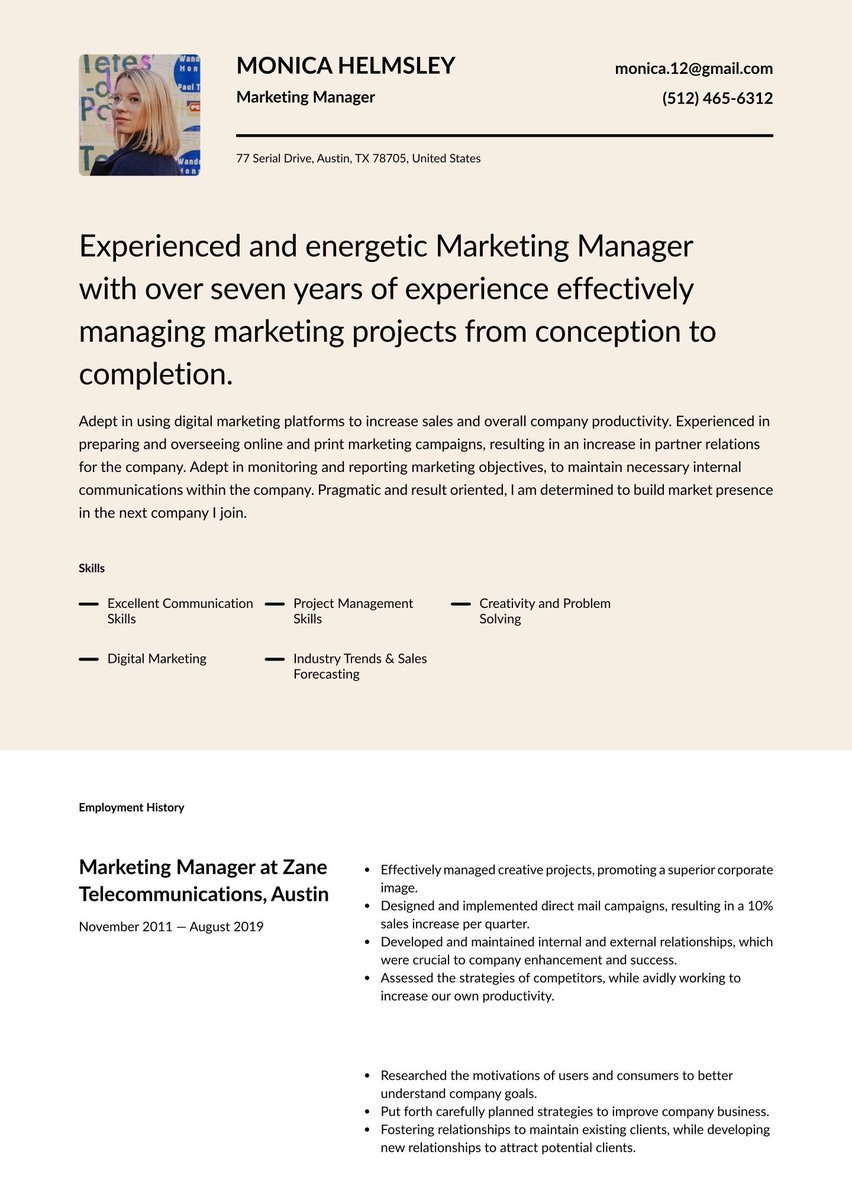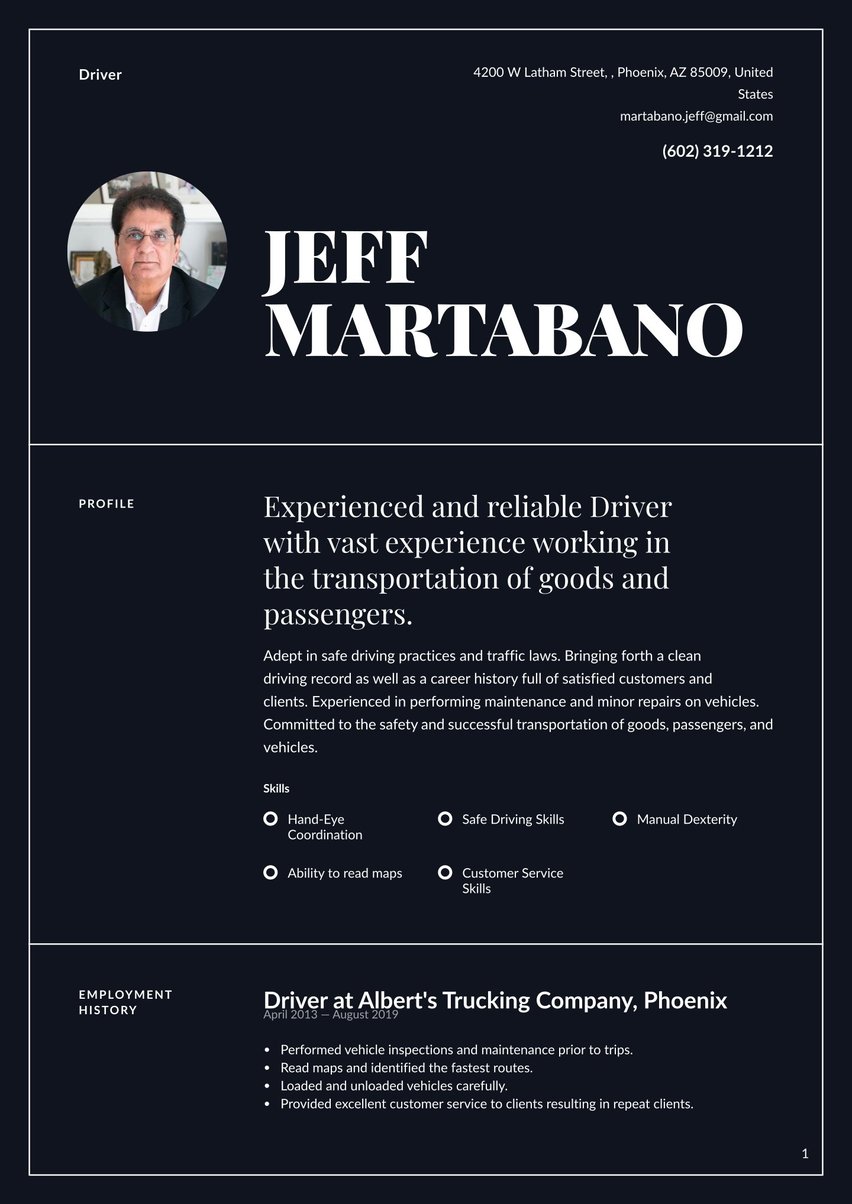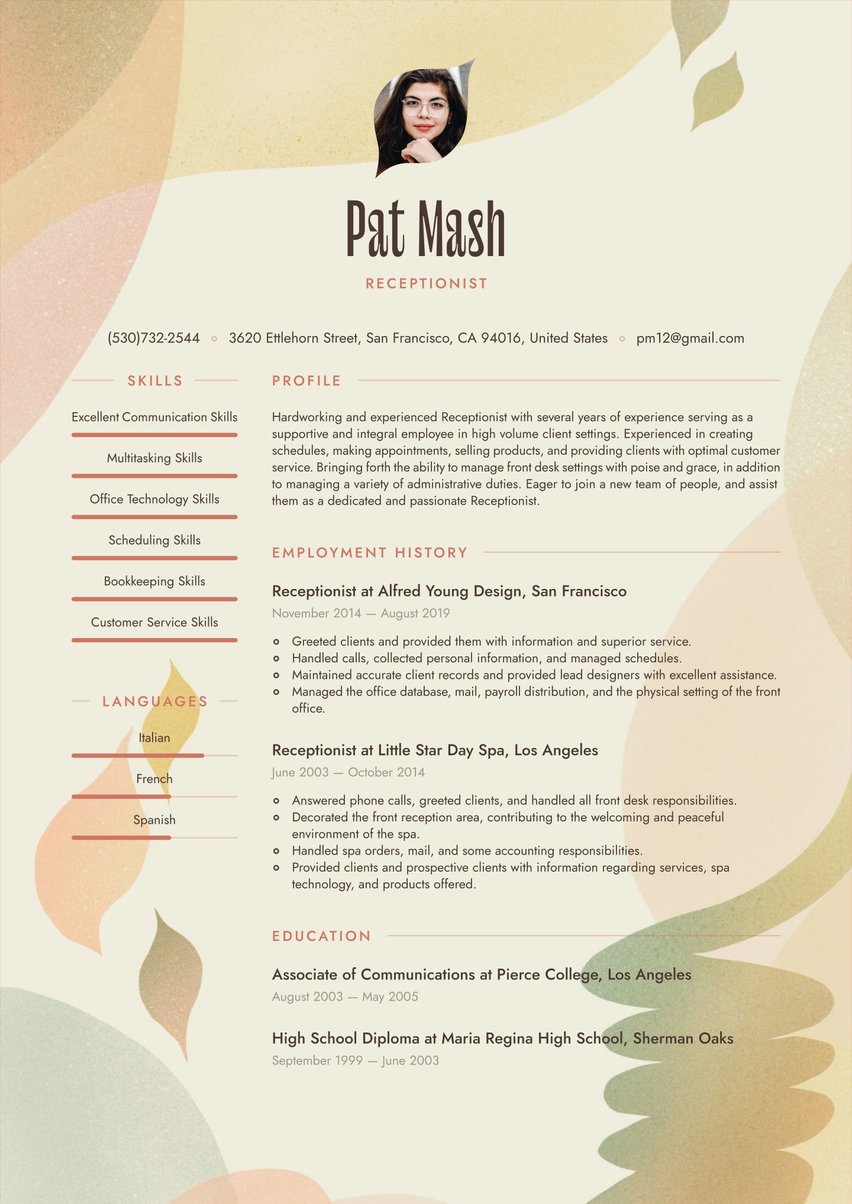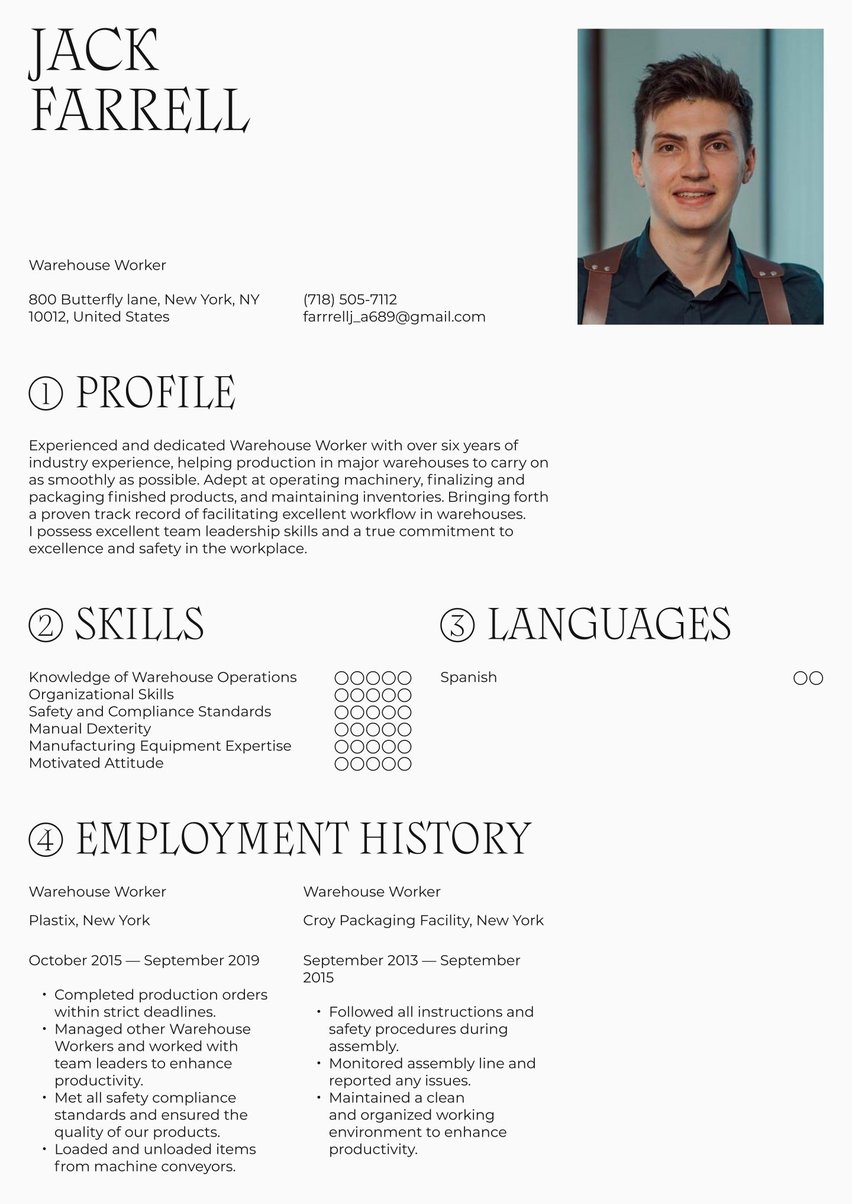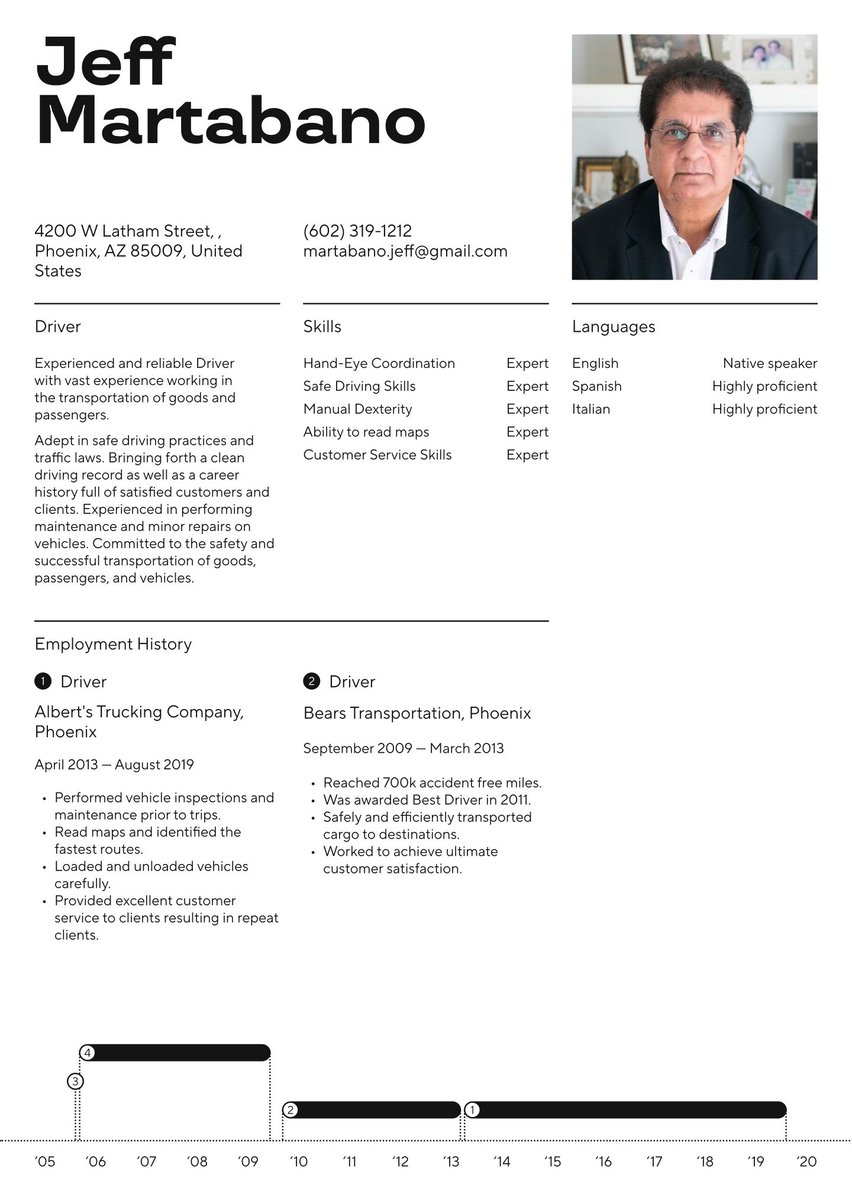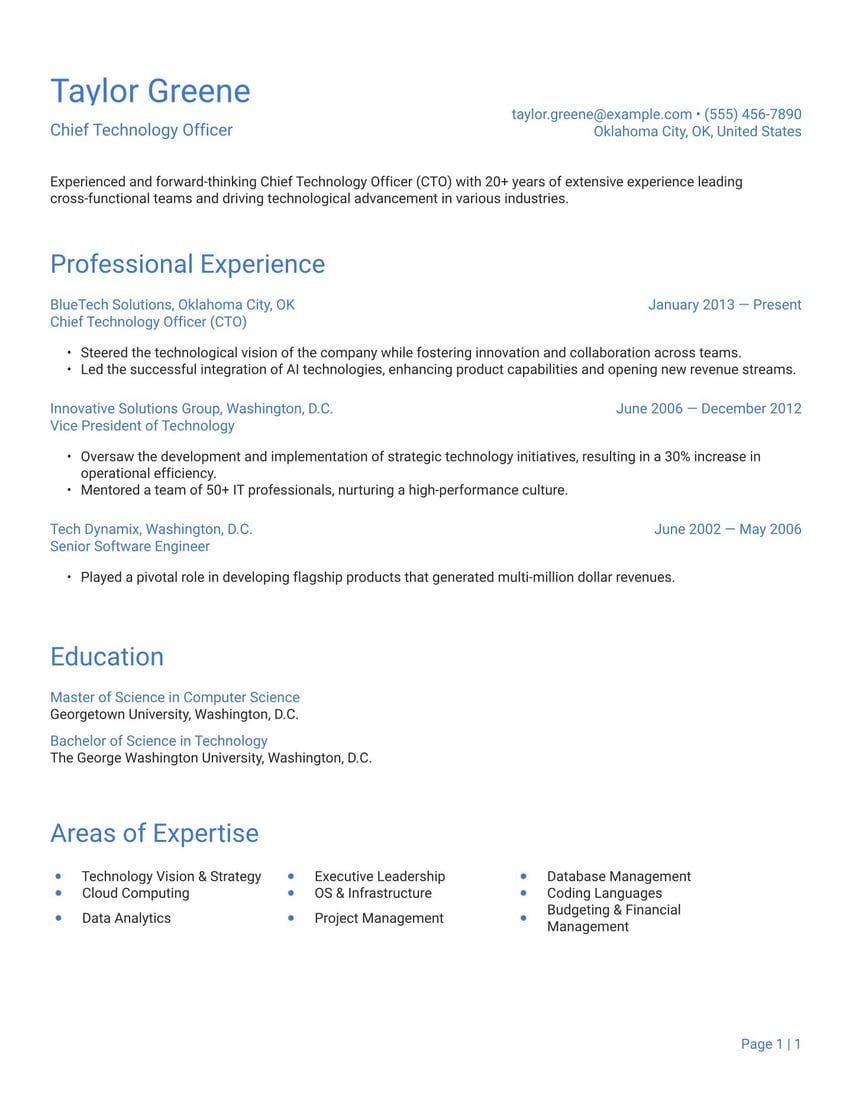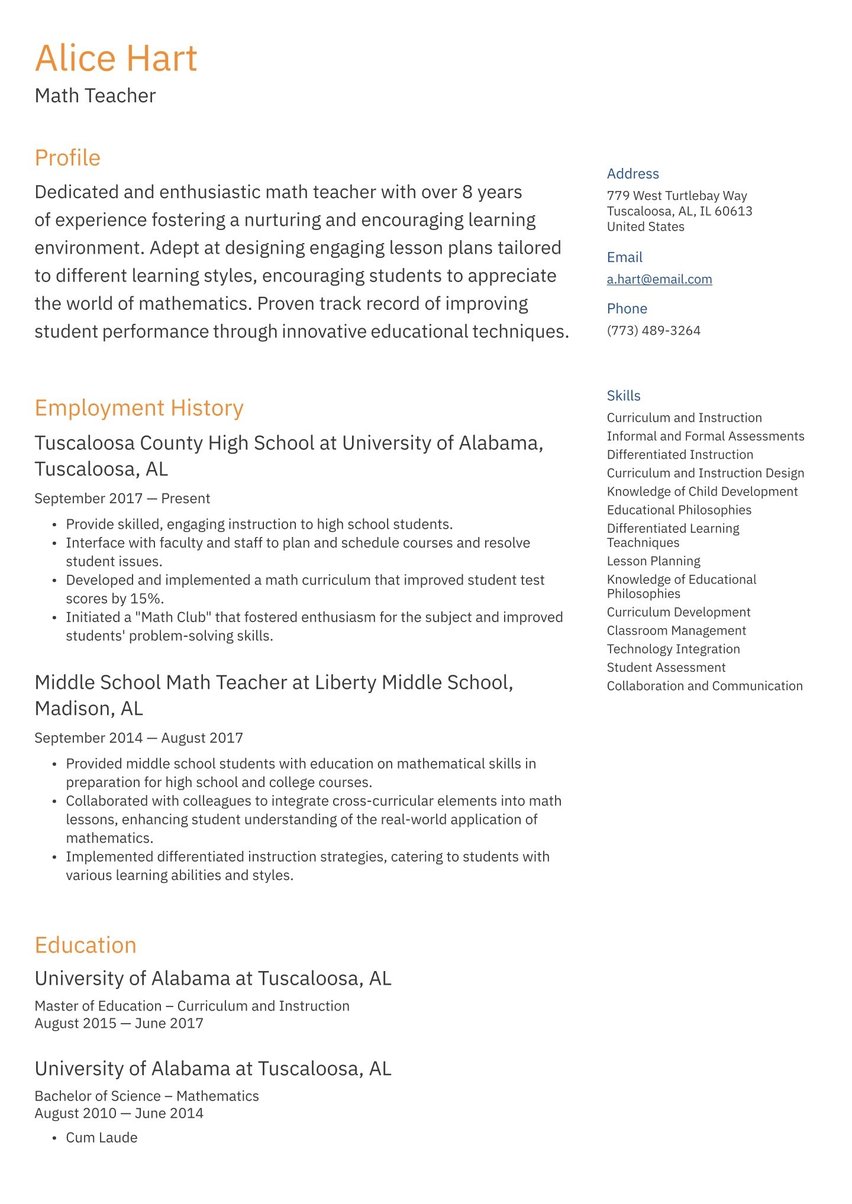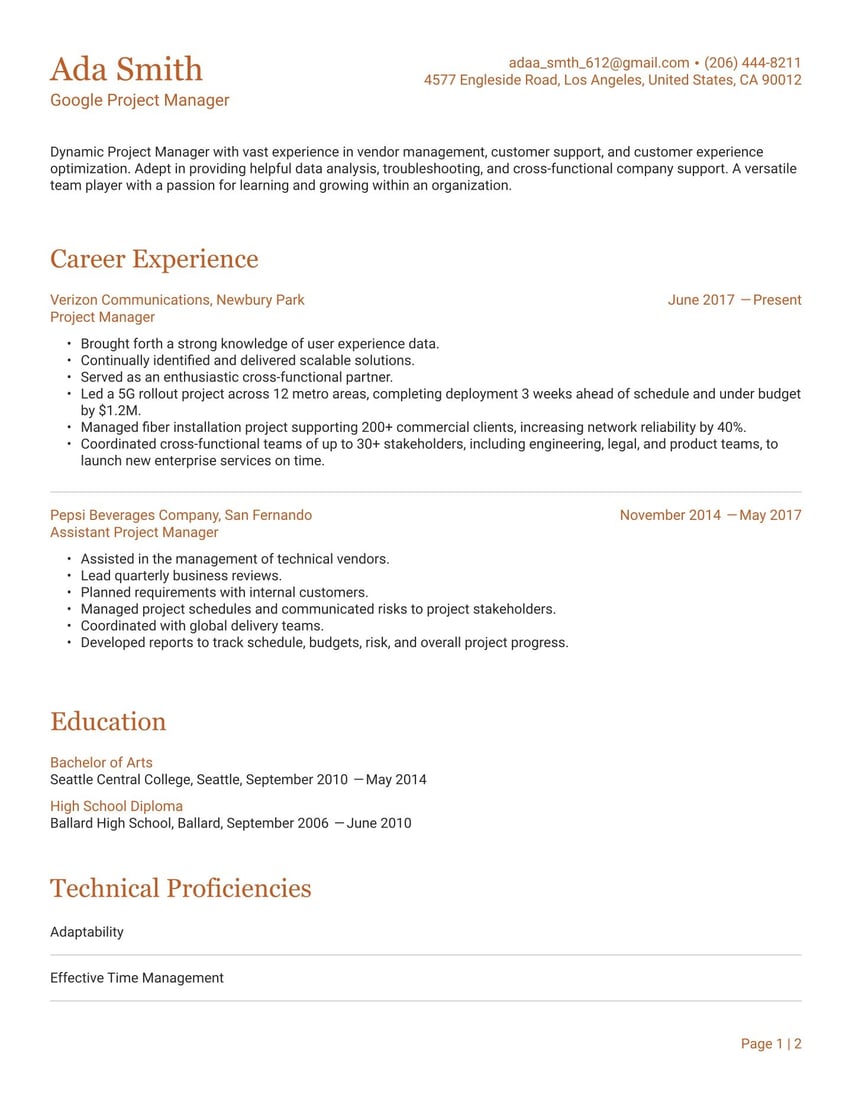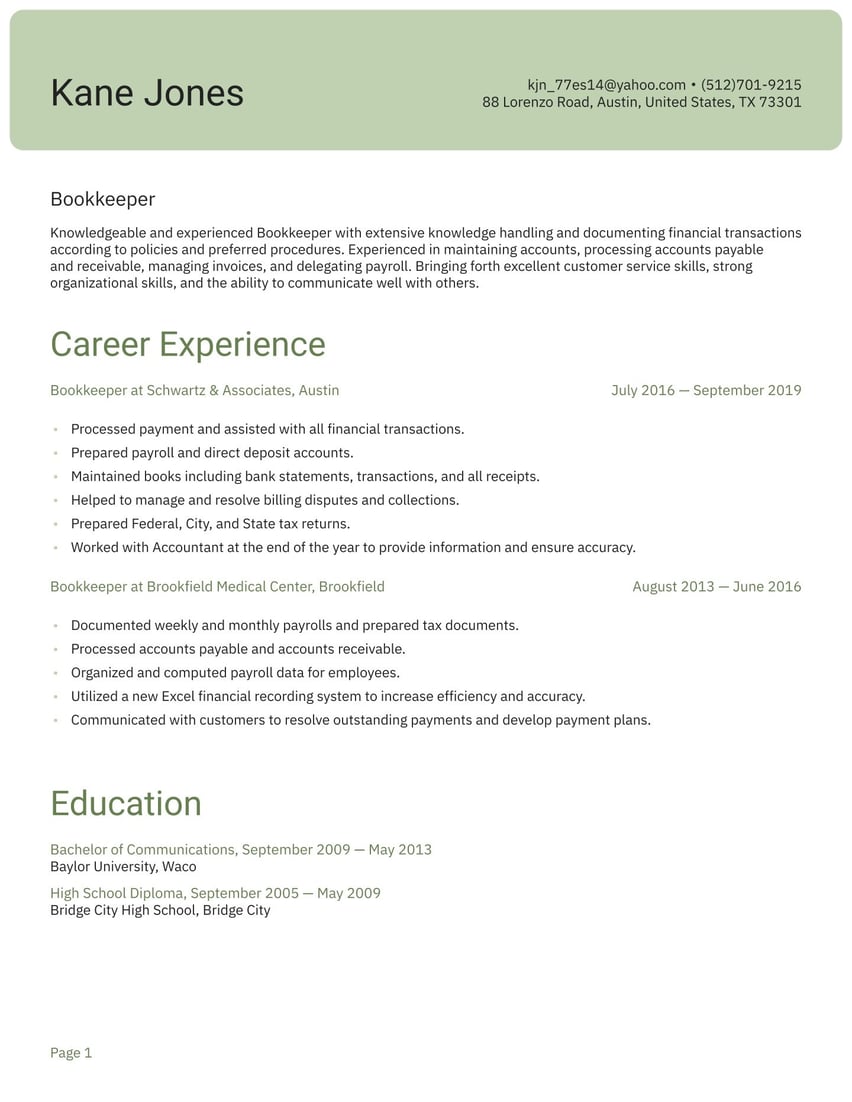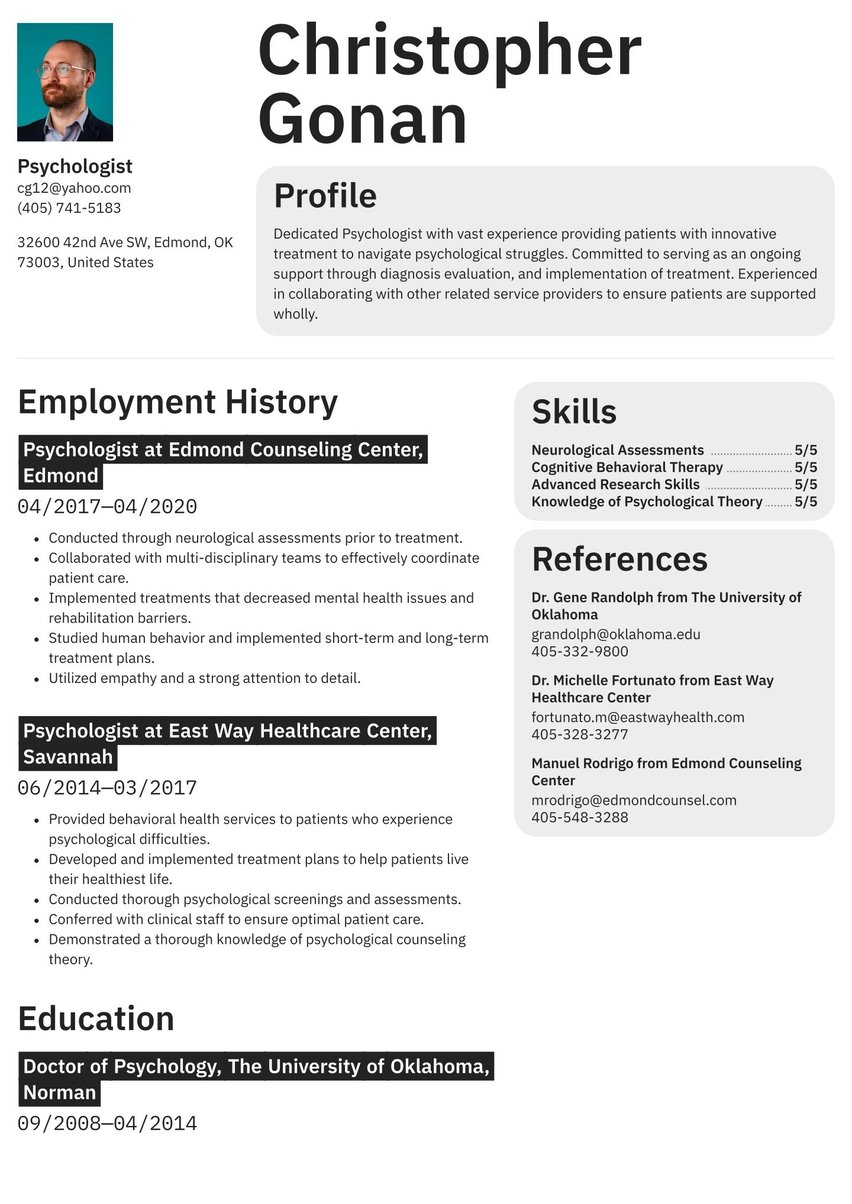Certified Public Accountant with five years of experience in account reconciliations, streamlining accounts, and financial planning. Highly motivated professional with a proven track record of delivering accurate reports and high-quality service. Possess a comprehensive understanding of all aspects of accounting and financial planning. A dedicated leader with the ability to lead effective teams in attaining profit improvement.
07/2019 - 09/2022, Accountant, Huntington Associates, Philadelphia
- Oversaw the management of all company accounts.
- Processed staff payroll and other main aspects of financial transactions.
- Managed accounting team of 10 and ensured that all accounting records were complete and accurate.
- Explained financial matters to people outside of the finance department in a comprehensive way.
- Handled sensitive and confidential matters discreetly.
- Working closely with junior staff members while aiding them in the progression of their careers.
11/2014 - 09/2018, Staff Accountant, Dubone Partnership, New York
- Managed accounts by analyzing costs and revenues.
- Projected future trends based on analysis work.
- Managed complex expense reporting.
- Developed strategies for minimizing tax liability.
- Worked closely with auditors during all audit processes.
- Performed financial risk assessments for all future business projects.
- Organized sales and profit reports.
- Prepared, reviewed, and submitted crucial budget plans for company goals.
10/2013 - 10/2014, Accounting Records Manager, Pepsico, New York
- Supervised staff of 12 finance department members.
- Prepared budget and analyzed inventories, cost of goods, and general accounts.
- Served as a liaison between the accounting staff and the external audit staff.
01/2023 - 01/2023, Certified Public Accountant, State of New York, New York City
07/2020 - 07/2020, Master of Business Administration and Accounting, St. Joseph's College, New York
05/2012 - 05/2012, Bachelor of Finance, University of Pennsylvania, Philadelphia
- Financial Reporting
- Taxation
- Auditing
- Cross-functional Collaboration
Every business needs an accountant, and every accountant resume that’s worthy of a prospective employer’s attention needs to measure up on multiple counts.
Accountant resume examples by experience level
Accounting Assistant
Accounting Entry Level
Tax Accountant
CPA
Staff Accountant
Senior Accountant
Accountants know that attention to detail and careful calculation are requirements for a job well done, but it turns out that applies to resume writing as well. Your resume offers a first impression to the hiring team, so it's important to make it a good one.
Resume guide for an accounting resume
Resume.io is here to help. Our resume builder and field-tested resume examples for over 500 professions will give you the advantage to stay ahead in your pursuit of a dream accountant job.
This resume guide and corresponding accountant resume example will cover the following topics:
- How to write an accounting resume
- How to choose the right format for an accounting resume
- How to include your contact information
- Using summaries
- Including your accounting experience
- Listing your education and certifications
- Selecting the right resume design/layout
- The job market and outlook for accountants today
Let's jump in.
How to write an accounting resume
Before you get started, you need to know what your accountant resume should include. Here are the necessary sections:
- The resume header
- The resume summary (aka profile or personal statement)
- The employment history section
- The resume skills section
- The education section
Your resume should reflect the unique you bring as an accountant. To start, gather as much information as possible about the company and role to which you're applying. Try to understand the company's needs and plan to showcase how you are exactly the right accountant to solve their problems.
To do this well, stick to this formula:
- Highlight your accomplishments, not just your job duties. Anyone can list the tasks they were assigned, but showcasing your specific achievements will further prove your value.
- Tailor your resume for each application you submit by adjusting the style and tone to match that of the employer.
- Convey a professional, streamlined image with a resume template that's polished, not stuffy or overly formal.
- Include relevant keywords to make sure the reader or system can understand exactly what you've accomplished.
Optimize for the ATS
An applicant tracking system, or ATS, is a system companies use to collect and manage applications. Advanced applicant tracking systems may use algorithms to assist in screening resumes. They may look for keywords that are aligned with the job description, then pass forward those that rank highest.
For example, an accountant job posting may include the following requirements:
- “Proficiency in various accounting software."
- "Knowledge of accounting principles and standards."
- "Financial analysis expertise."
Your resume profile summary, when integrating the keywords, could read:
“Accounting expert with 5 years of experience in both accounting and financial analysis. Fluent in multiple accounting software systems. Deep knowledge of accounting principles and standards, including GAAP."
Choosing the right resume format for accounting
Your resume should be straightforward, professional, and easy to understand — the same qualities of a great accountant.
While there are various resume formats, the best option is the reverse chronological format. This format showcases your most recent experience first then works backwards into your past roles.
For those who are hoping to make a career transition or otherwise have a unique background, a functional format, which focuses on skills and talents rather than employers, may be useful. In other instances, a hybrid (combination) resume format makes sense in adapting chronological and functional elements.
Spend some time exploring the resume templates in our resume builder and select the format that best suits your situation. There are plenty of versions of each format available as resume examples, as well.
Be sure to use a clean modern or professional layout for your accountant resume, as this will reflect your professional brand.
Include your contact information
The resume header is your opportunity to make it clear whose resume the reader is viewing and how to contact you. It's imperative to make this as easily accessible as possible while ensuring it's presented professionally.
What sort of information should you include?
- Full name & title. List your first and last name as well as the title of the role you are pursuing.
- Professional email address. Use a clean format like firstname.lastname@gmail.com — not a quirky, unprofessional email address.
- Phone number. List a number where you can be easily contacted. Make sure you have a professional voicemail greeting and your voicemail box isn't full.
- Location. You need only list your city and state. Don’t list street address or zip code, as that's both outdated and unsafe. If you're willing to relocate for work, note " Willing to Relocate" here.
- LinkedIn. If your LinkedIn profile is active and relevant, link to it here.
Don’t include:
- Date of birth: This isn't necessary and could potentially lead to age discrimination.
- Personal details: Leave off any information related to your marital status, social security number, passport number, etc.
James Clark
6500 Rossey Street
Philadelphia, PA 19119
United States
(267) 216-2188
Make use of a summary
Accounting is typically characterized as a technical profession, but that should not stop you from infusing some personality in your accountant resume. In particular, the summary (sometimes called a profile) of your accountant resume is the place for adding the human dimension. It also gives you a chance to challenge certain stereotypes about financial professionals being dry or uncooperative by nature.
Think of your accountant resume summary as a story of expertise and character. In fact, this is really the only resume section where you can employ a bit of creativity, since it's relatively freeform while most other resume sections have standard formatting in bullet points.
Make sure to use energetic language, action verbs, and positive statements. and let some character to shine through. Don't just repeat information from your resume in different words; instead, use this area to provide overarching themes about who you are, how you work, and what you've achieved.
You can find adaptable accountant resume example summaries below:
Recent accounting graduate with one year of experience in account reconciliations, streamlining accounts, and financial planning. Highly motivated professional with an eagerness to learn and grow in the accounting industry. Comprehensive educational background and understanding of all aspects of accounting and financial planning.
Certified Public Accountant with five years of experience in account reconciliations, streamlining accounts, and financial planning. Highly motivated professional with a proven track record of delivering accurate reports and high quality service. Possess a comprehensive understanding of all aspects of accounting and financial planning and able to train and mentor teammates in accounting best practices.
Certified Public Accountant and MBA with 10+ years of experience in account reconciliations, streamlining accounts, and financial planning. Strong leader with proven track record of driving teams to delivery accurate reports and high-quality service. Comprehensive expertise in all aspects of accounting and financial planning and able lead effective teams in attaining profit improvement.
Outline your accounting work experience
In accordance with a reverse chronological format, list your current or most recent job at the top of this section and work your way back from there. Don't go back more than 10-15 years; while your earlier experience is no doubt valuable, it may not be as relevant as more recent work. Plus, it can invite ageism.
Only include information that is directly related to the kind of role you're targeting. If you have other experience you'd like to add, consider an "Other Experience" section to capture it.
Beneath each employer and title heading, detail your contributions and achievements in succinct, specific bullet points. Omit the use of personal pronouns like "I" and "my." Start each bullet point with an action verb that reflects your impacted: managed, budgeted, analyzed, saved, assessed.
Don't just list your job duties. Instead, demonstrate tangible outcomes. It's best if you can include specific numbers. Without that level of specificity, your resume may seem a bit bland — and who wants to further that accounting stereotype?
For example, these bullets could be written by anyone:
- Handled accounting and financial analysis
- Analyzed budgets for the company as needed
- Filed financial reports and records
They're vague and nonspecific, right? Look what happens when you add more context:
- Managed accounting and financial analysis for 100-person organization as sole accountant on staff
- Saved $200k per year through careful budget analysis and uncovering unneeded expenses
- Improved accuracy and timeliness of financial report filing, achieving compliance for the first time
Take a look at the accountant employment history resume sample below:
Accountant at Huntington Associates, Philadelphia
July 2019 - September 2022
- Oversaw the management of all company accounts.
- Processed staff payroll and other main aspects of financial transactions.
- Managed accounting team of 10 and ensured that all accounting records were complete and accurate.
- Explained financial matters to people outside of the finance department in a comprehensive way.
- Handled sensitive and confidential matters discreetly.
- Working closely with junior staff members while aiding them in the progression of their careers.
Staff Accountant at Dubone Partnership, New York
November 2014 - September 2018
- Managed accounts by analyzing costs and revenues.
- Projected future trends based on analysis work.
- Managed complex expense reporting.
- Developed strategies for minimizing tax liability.
- Worked closely with auditors during all audit processes.
- Performed financial risk assessments for all future business projects.
- Organized sales and profit reports.
- Prepared, reviewed, and submitted crucial budget plans for company goals.
Accounting Records Manager at Pepsico, New York
October 2013 - October 2014
- Supervised staff of 12 finance department members.
- Prepared budget and analyzed inventories, cost of goods, and general accounts.
- Served as a liaison between the accounting staff and the external audit staff.
The STAR method is effective for summarizing work experience highlights on your accounting resume. Simply describe: S — the situation; T — task(s); A — actions/strategy; and R — result achieved. Again, numbers and other outcome measurements are ideal.
This resume writing method is also useful to prepare for a job interview, as it helps keep your explanations logical and straightforward.
Include the relevant key skills that make you a great accountant
Accounting focuses on hard skills, and an accounting resume typically reflects that in about 90% of the content. However, you'll want both hard and soft skills to showcase your comprehensive expertise. Hard skills are those that are measurable, like experience with accounting software or particular financial regulations. On the other hand, soft skills are those that pertain more to how you think and work with others, like dependability, strong communication, or complex problem-solving.
Keep in mind that your accounting resume should be concise and tailored to the specific accounting position you are seeking, so you don't need to include every single skill every time. One of the best tools for being selective about each specific resume skills section is your own master list. Create a separate document with just a bullet point list of your competencies and keep it handy for updating constantly. Then, for each new version of your accountant resume, analyze the job requirements and choose the most appropriate skills for your resume.
Resume.io offers several pre-written key skills to choose from when using the resume builder. You can also write in additional skills.
Here's what the skills box looks like in our accountant resume template:
- Financial Reporting
- Taxation
- Auditing
- Cross-functional Collaboration
This isn't the only place to include your skills, though. In fact, you should try to weave them throughout your resume to showcase them in action with specific examples and metrics.
For instance, your work experience could highlight things like:
- Proficiency with accounting software by including the systems you've used at your past jobs. For example, you can note that you worked with Excel for budget management.
- Accounting expertise by displaying your knowledge of principles (like GAAP), tax regulations, and cost analysis techniques.
- Attention to detail by showcasing your experience leading audits, catching errors, and saving the company money.
Look to the job posting for an idea of which skills are most impactful to include.
Detail your education & relevant accounting certifications
Your resume's education section is where you can show the academic achievements that make you a great accountant. Because accounting is typically not a self-taught profession, hiring teams expect you to bring some education and it's important to display it here. Accountants typically have an undergraduate degree in accounting, business, or finance, and may have an advanced degree on top of that.
Assuming you have a bachelor's or master's degree, there's no need to list your high school credentials. Do, however, include certifications or trainings related to accounting. Think about:
- Accounting certifications, particularly if you've earned designation as a Certified Public Accountant (CPA). Other certifications include Certified Management Accountant (CMA), Association of Chartered Certified Accountants (ACCA), and Chartered Institute Management Accountant (CIMA).
- Industry-specific certifications like Certified Bank Auditor (CBA), Certified Fraud Examiner (CFE), Certified Information Systems Auditor (CISA), Certified Internal Auditor (CIA) and Enrolled Agent (EA).
- Professional development, including relevant training courses and memberships in accounting-related professional associations.
- Internships, especially if you're a recent graduate or new to the industry.
Accountants are among the professions prominent in companies like the Big Four. This means high salaries and high competition. To reach a good position and have a great career in such environments, certifications are important. Most top-level professionals in these corporations have CPAs. And if you do as well, make sure to highlight that in your application.
Certified Public Accountant, State of New York, New York City
2023
Master of Business Administration and Accounting, St. Joseph's College, New York
July 2020
Bachelor of Finance, University of Pennsylvania, Philadelphia
May 2012
Pick the right resume layout and design for an accountant resume
Appropriate layout, design, and formatting are the foundation for attracting and focusing the recruiter’s attention on your accountant resume. Together, they create the first impression hiring managers will have.
To convey character and a professional image on your accounting resume, a clean and classical look is your best choice. Accountants are often associated with discipline, dependability, and expertise, so let's visualize that in your resume template.
Before choosing a template, reflect on what that resume format says about you as a candidate. For most formal accounting positions, you'll want to keep your template fairly simple. However for certain employers, a more creative or modern touch might be effective.
For more ideas, take a look at our field-tested resume templates, where the most tedious formatting and structure tasks are done for you.
Accountant text-only resume example
Profile
Certified Public Accountant with five years of experience in account reconciliations, streamlining accounts, and financial planning. Highly motivated professional with a proven track record of delivering accurate reports and high-quality service. Possess a comprehensive understanding of all aspects of accounting and financial planning. A dedicated leader with the ability to lead effective teams in attaining profit improvement.
Employment history
Accountant at Huntington Associates, Philadelphia
July 2019 - September 2022
- Oversaw the management of all company accounts.
- Processed staff payroll and other main aspects of financial transactions.
- Managed accounting team of 10 and ensured that all accounting records were complete and accurate.
- Explained financial matters to people outside of the finance department in a comprehensive way.
- Handled sensitive and confidential matters discreetly.
- Working closely with junior staff members while aiding them in the progression of their careers.
Staff Accountant at Dubone Partnership, New York
November 2014 - September 2018
- Managed accounts by analyzing costs and revenues.
- Projected future trends based on analysis work.
- Managed complex expense reporting.
- Developed strategies for minimizing tax liability.
- Worked closely with auditors during all audit processes.
- Performed financial risk assessments for all future business projects.
- Organized sales and profit reports.
- Prepared, reviewed, and submitted crucial budget plans for company goals.
Accounting Records Manager at Pepsico, New York
October 2013 - October 2014
- Supervised staff of 12 finance department members.
- Prepared budget and analyzed inventories, cost of goods, and general accounts.
- Served as a liaison between the accounting staff and the external audit staff.
Skills
- Financial Reporting
- Taxation
- Auditing
- Cross-functional Collaboration
Education
Certified Public Accountant, State of New York, New York City
2023
Master of Business Administration and Accounting, St. Joseph's College, New York
July 2020
Bachelor of Finance, University of Pennsylvania, Philadelphia
May 2012
Accountant job market and outlook
Accounting is a vitally important function that impacts businesses daily. Accountants have traditionally been viewed as keepers of financial records, caretakers of tax-related documents, and — essentially — "the numbers people."
But the core of most accounting roles is much deeper and wider in today’s increasingly dynamic and complex economy. Ask anyone running a business, working in a large corporation, or navigating government interactions how well they could manage without great accounting support. Chances are, they couldn't manage it well.
The U.S. Bureau of Labor Statistics (BLS), a leading source of occupation-specific market data, combines accountants and auditors in the same information category. This work is carried out in the following forms of employment: accounting, tax preparation, bookkeeping, and payroll services; finance and insurance; government; management of companies and enterprises; and self-employed.
The accounting job outlook, which is generally tied closely to the health of the overall economy, is on a stable growth path. The BLS projects 4% increase in jobs for accountants and auditors from 2022-2032, about as fast as the average for all occupations. They anticipate an average of 126,500 accounting and auditing roles to be available per year.
Accountants earn a higher-than-average income, much like other financial professionals. According to the BLS, the average annual salary for accountants and auditors in 2022 was $86,740. The median income was $78,000, with those in the 75th percentile earning over $100,000 and those in the 90th percentile earning over $130,000.
Looking for some resume inspiration? Check out some related resume examples from the financial industry:
- Finance-director resume example
- Senior-accountant resume example
- Bank-teller resume example
- Loan-officer resume example
- Loan-processor resume example
- Bookkeeper resume example
- Auditing-clerk resume example
- Banker resume example
- Compliance-officer resume example
- Investment-banker resume example
- Financial-analyst resume example
- Financial-advisor resume example
Key takeaways for building an accountant resume
Steady growth in the accountant job market means competition for the best jobs is likely to increase, so you need all the best tools to create an outstanding resume that gives you every advantage over other candidates. Now that you know how to write an excellent accountant resume comprising all the relevant sections, you can make your fit for the role clear to any recruiter or hiring manager.
Using our online resume builder can make it even easier with a streamlined, organized process — and what accountant doesn't love that?

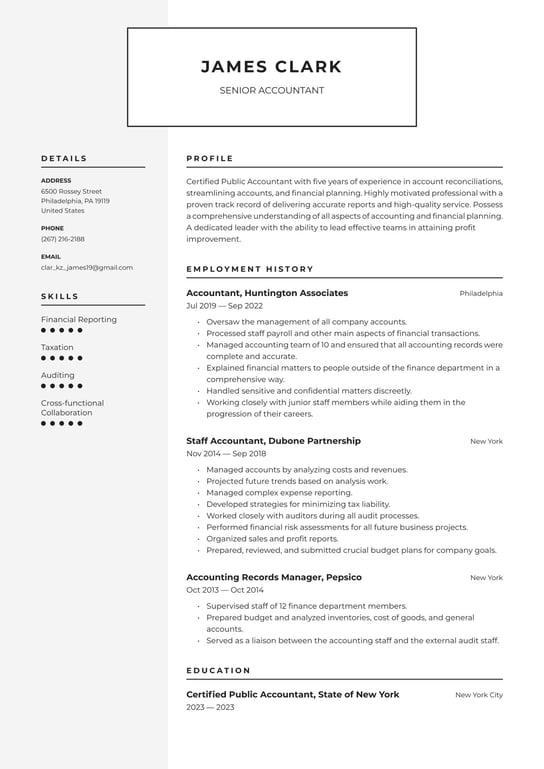
.jpg)

.jpg)













